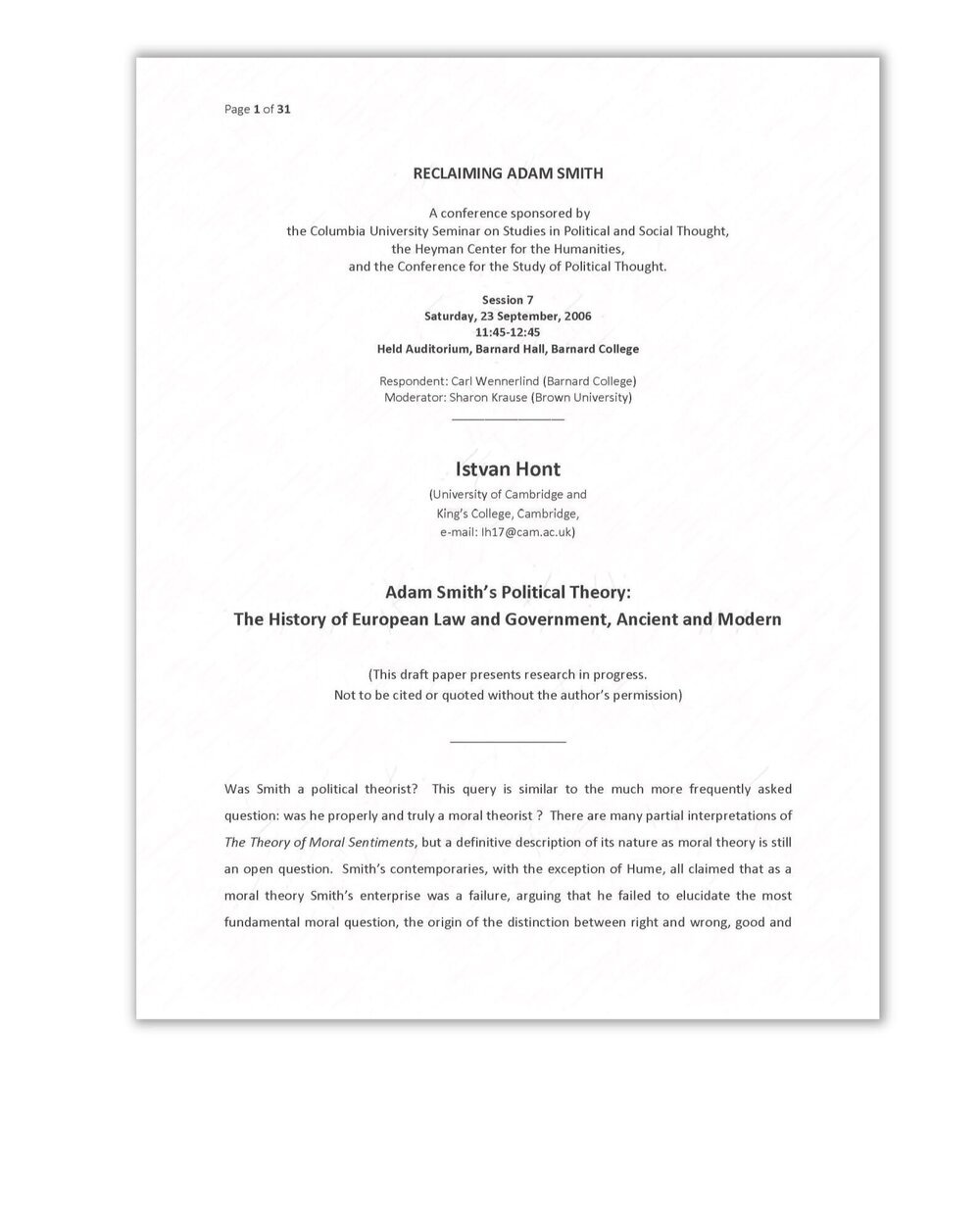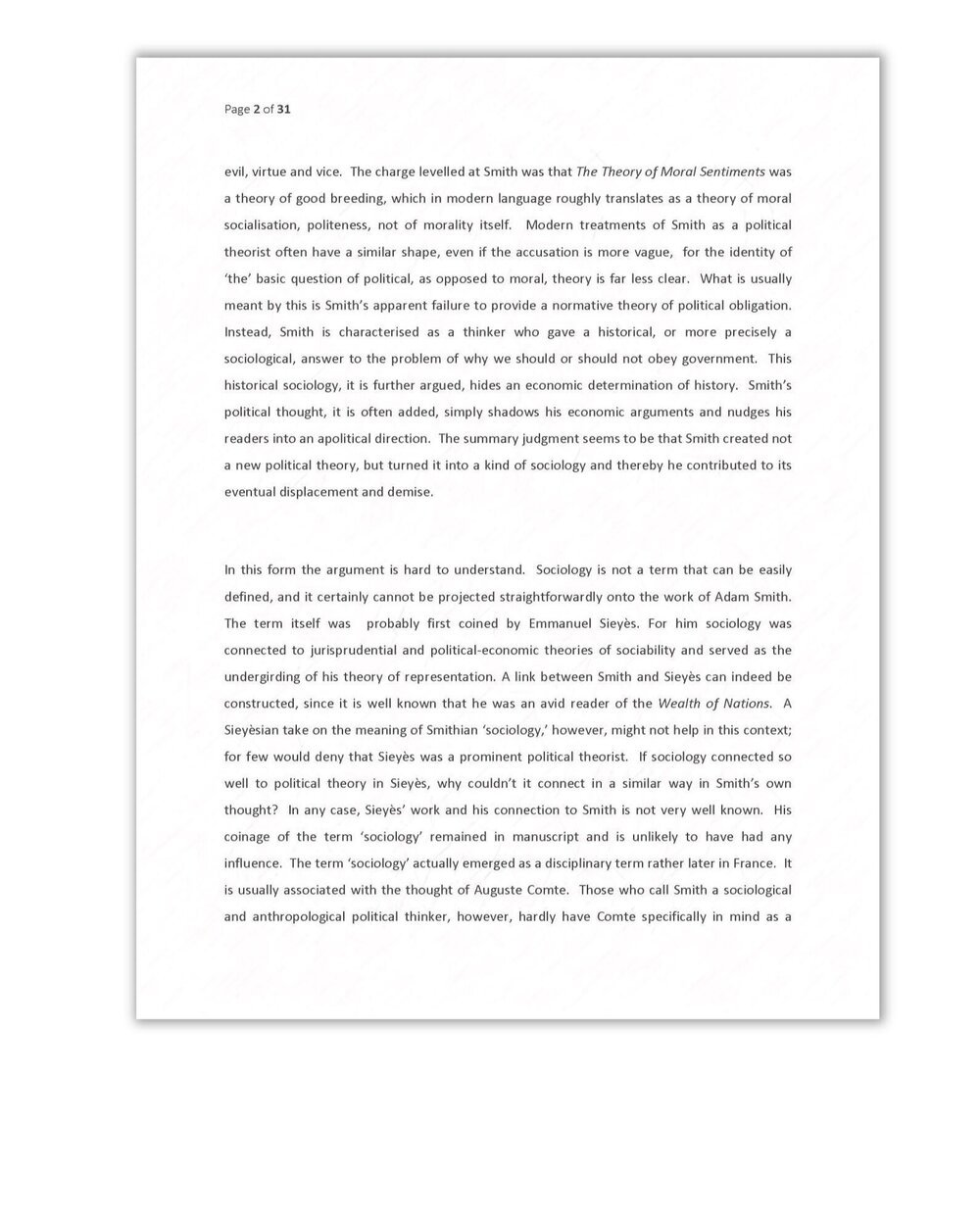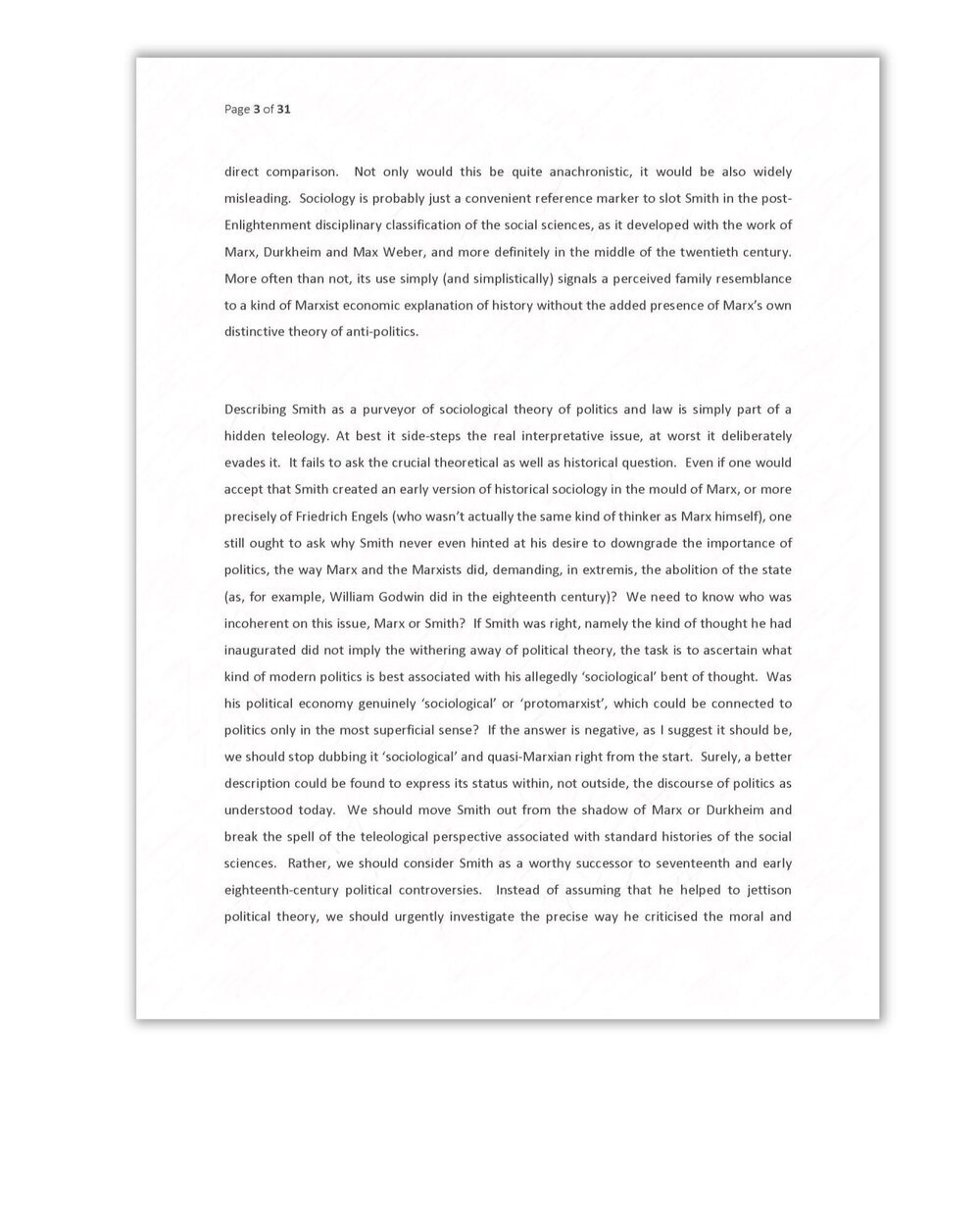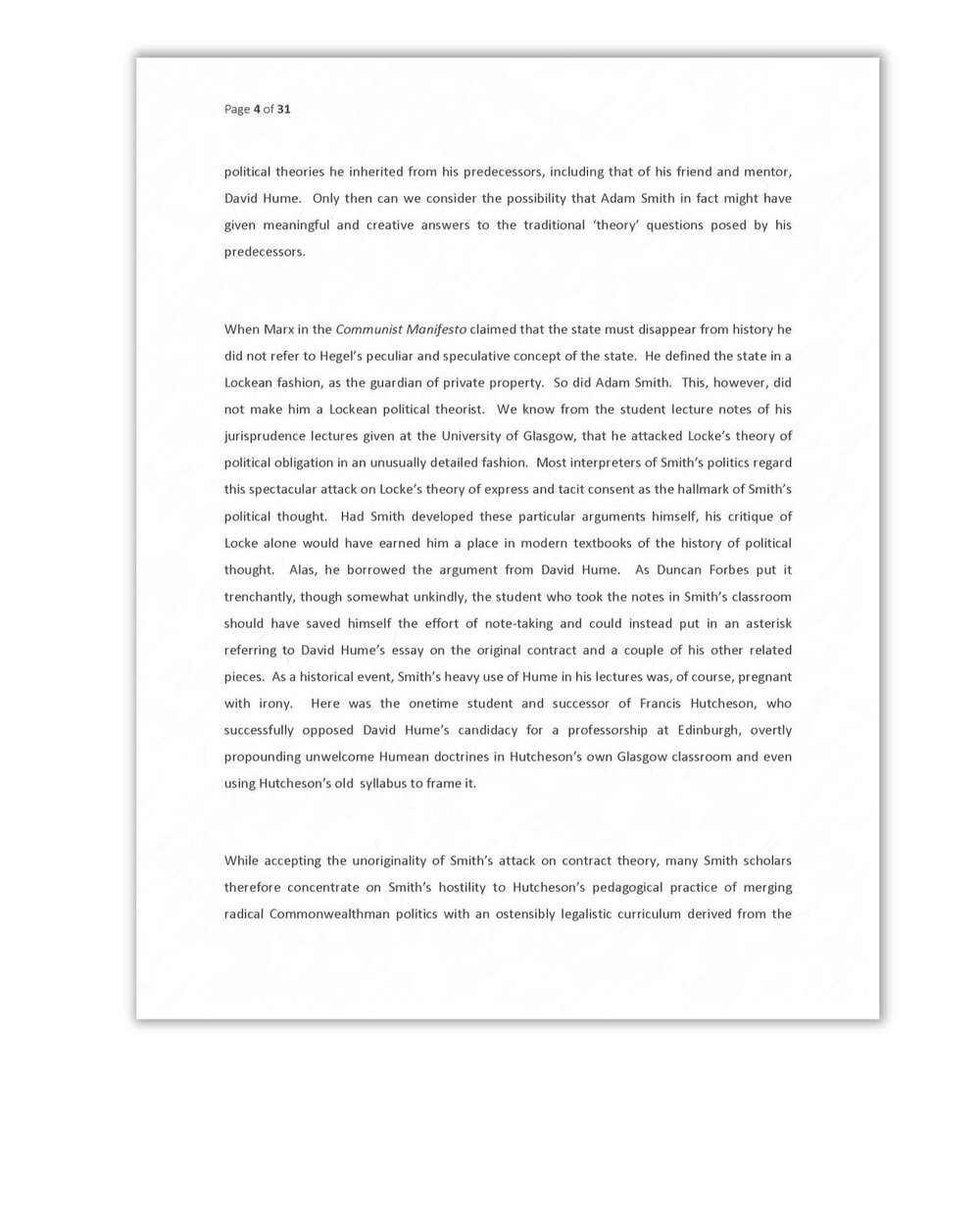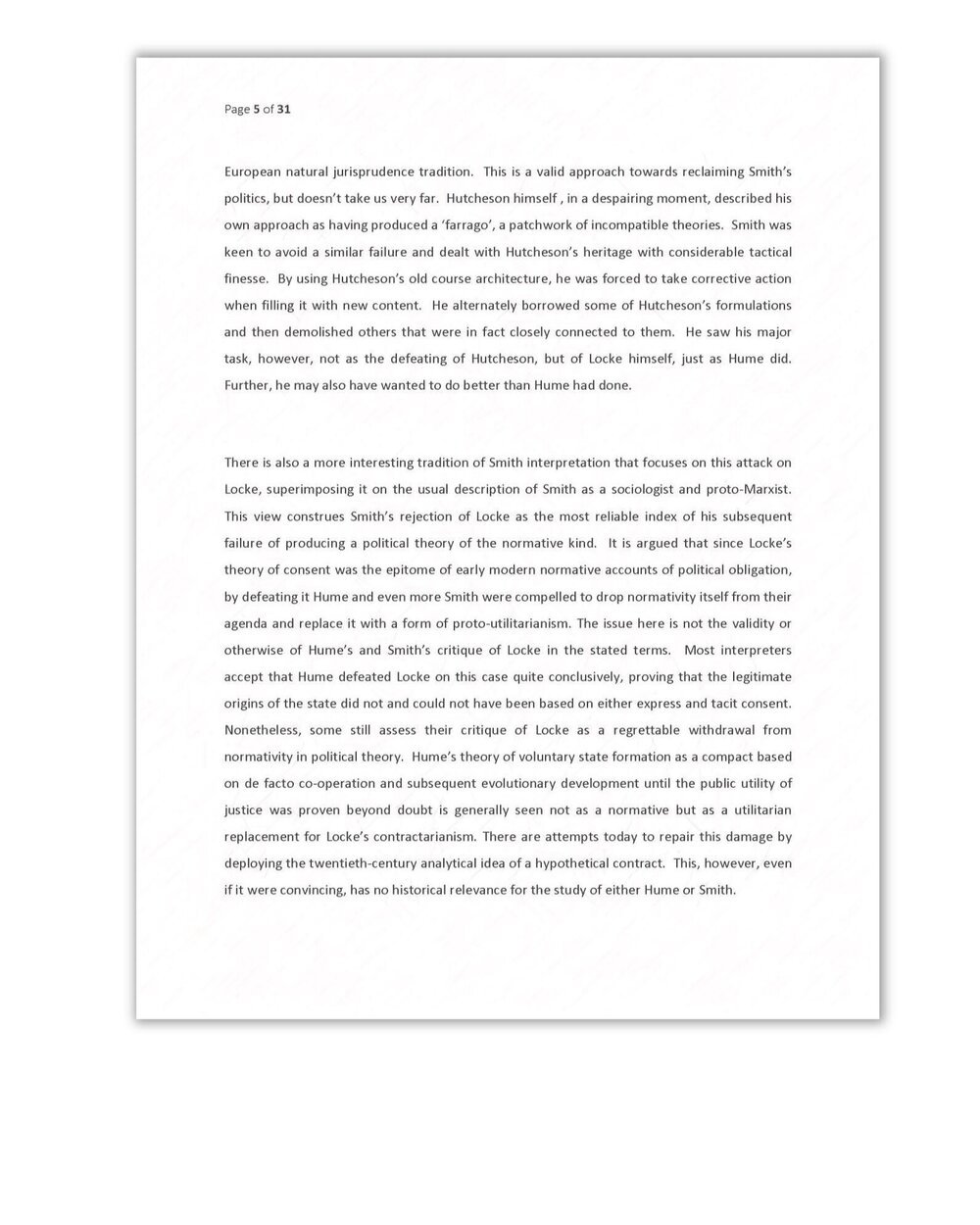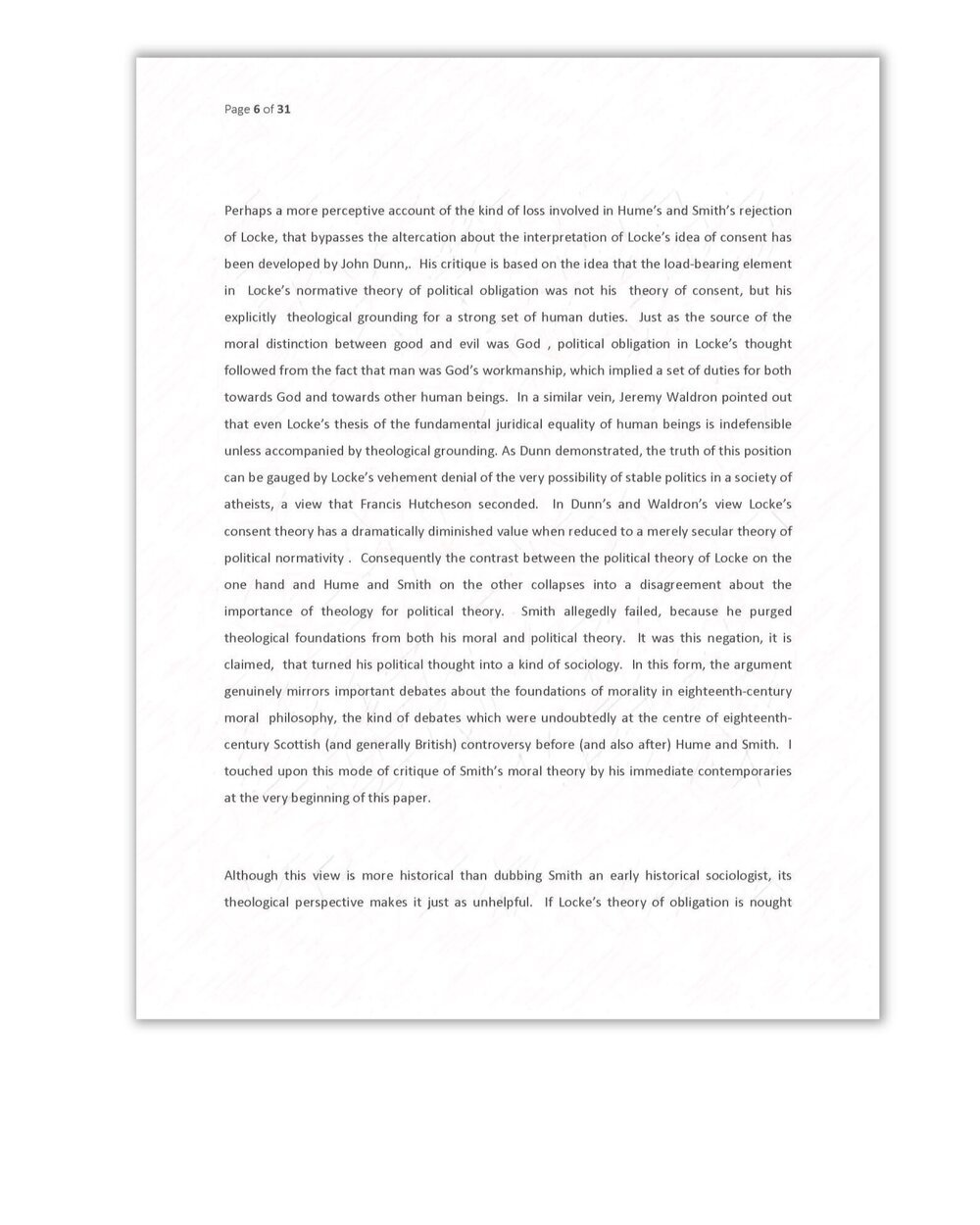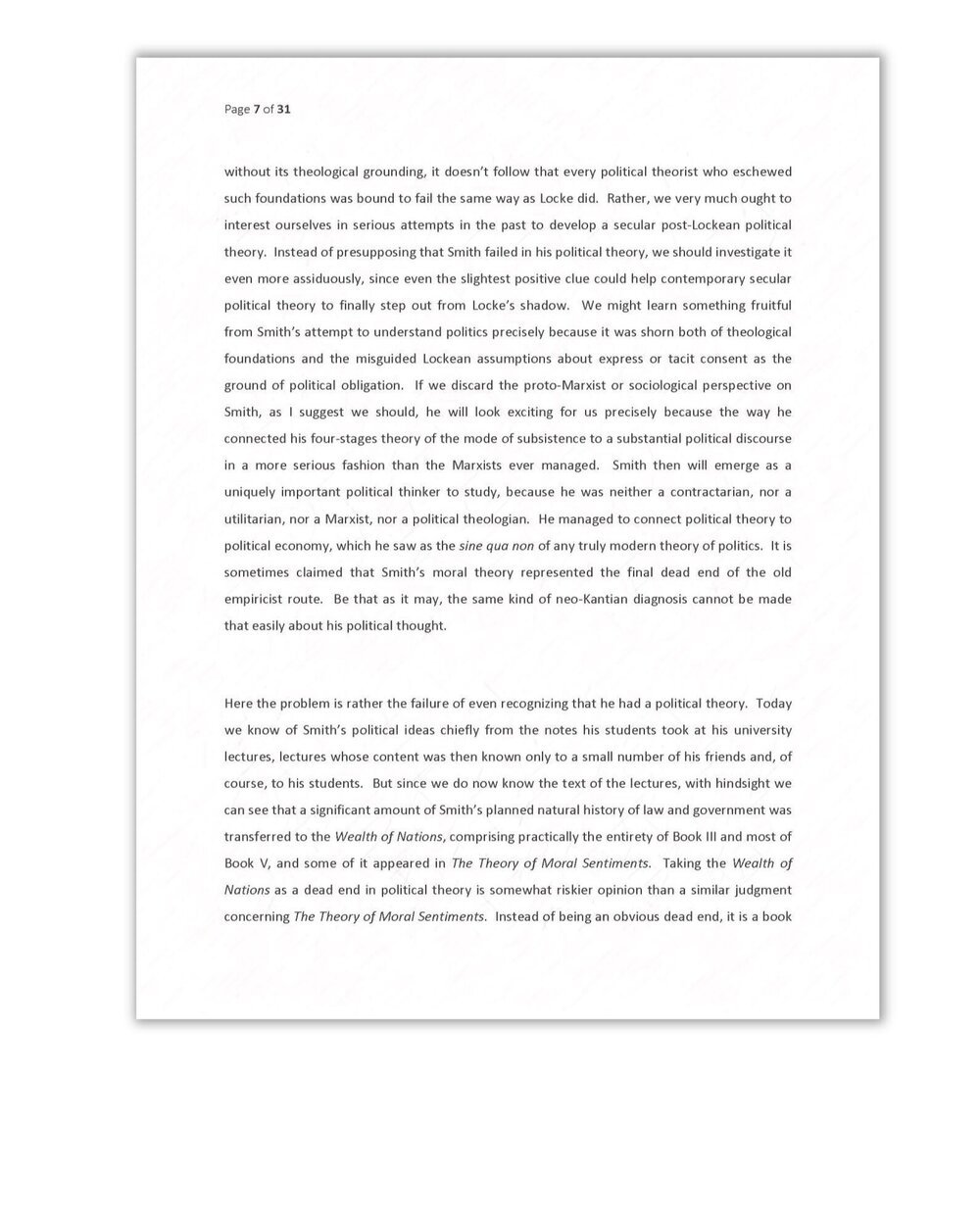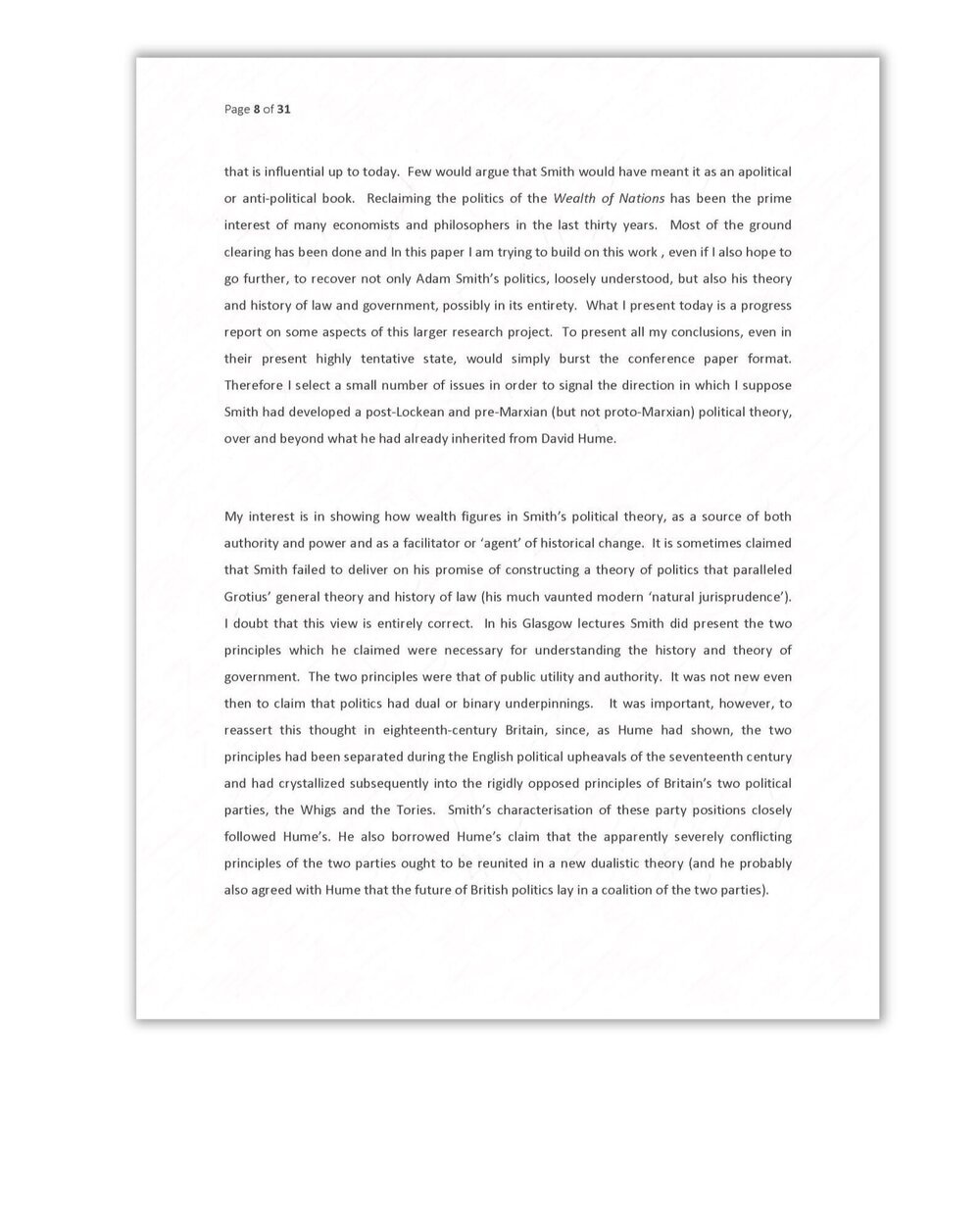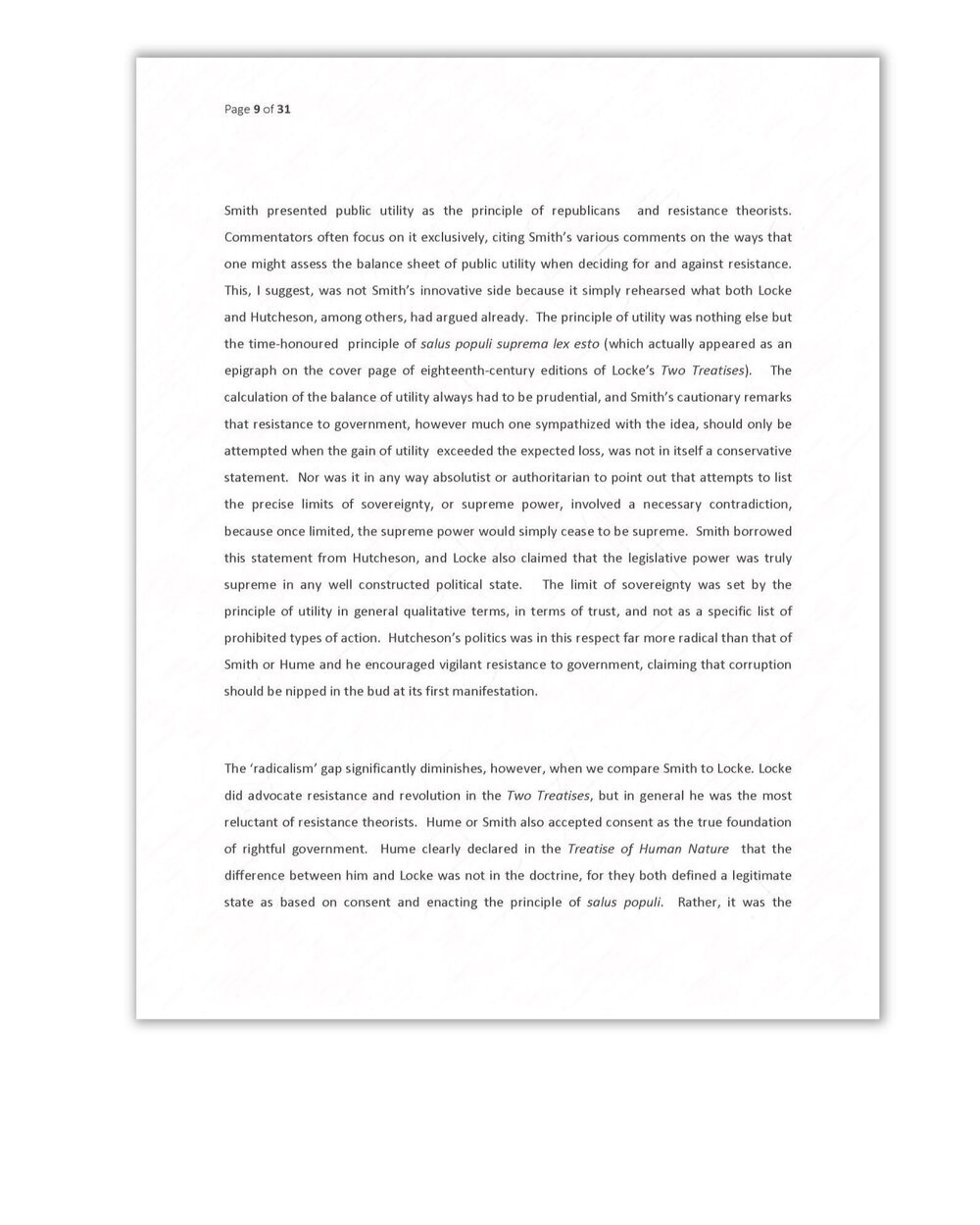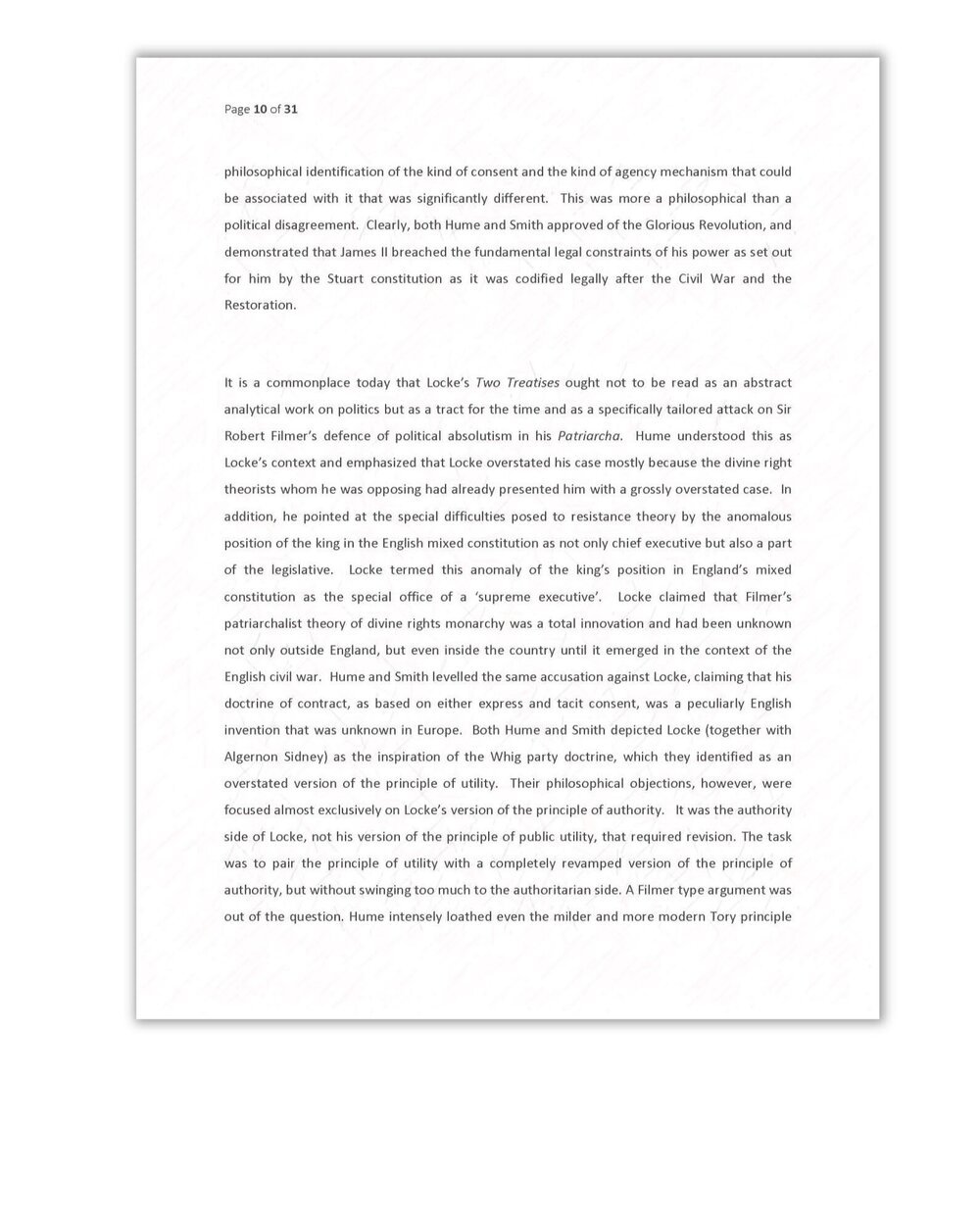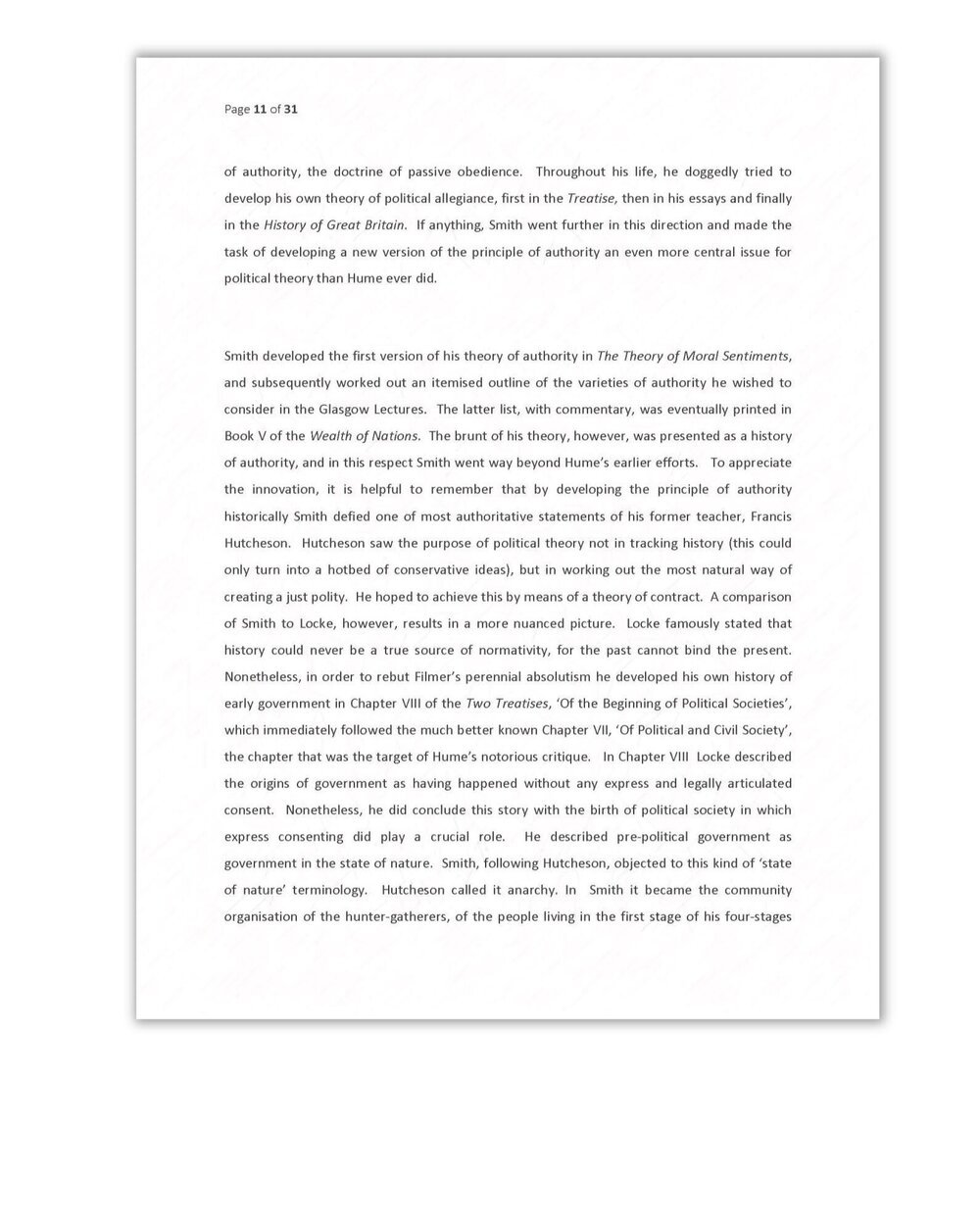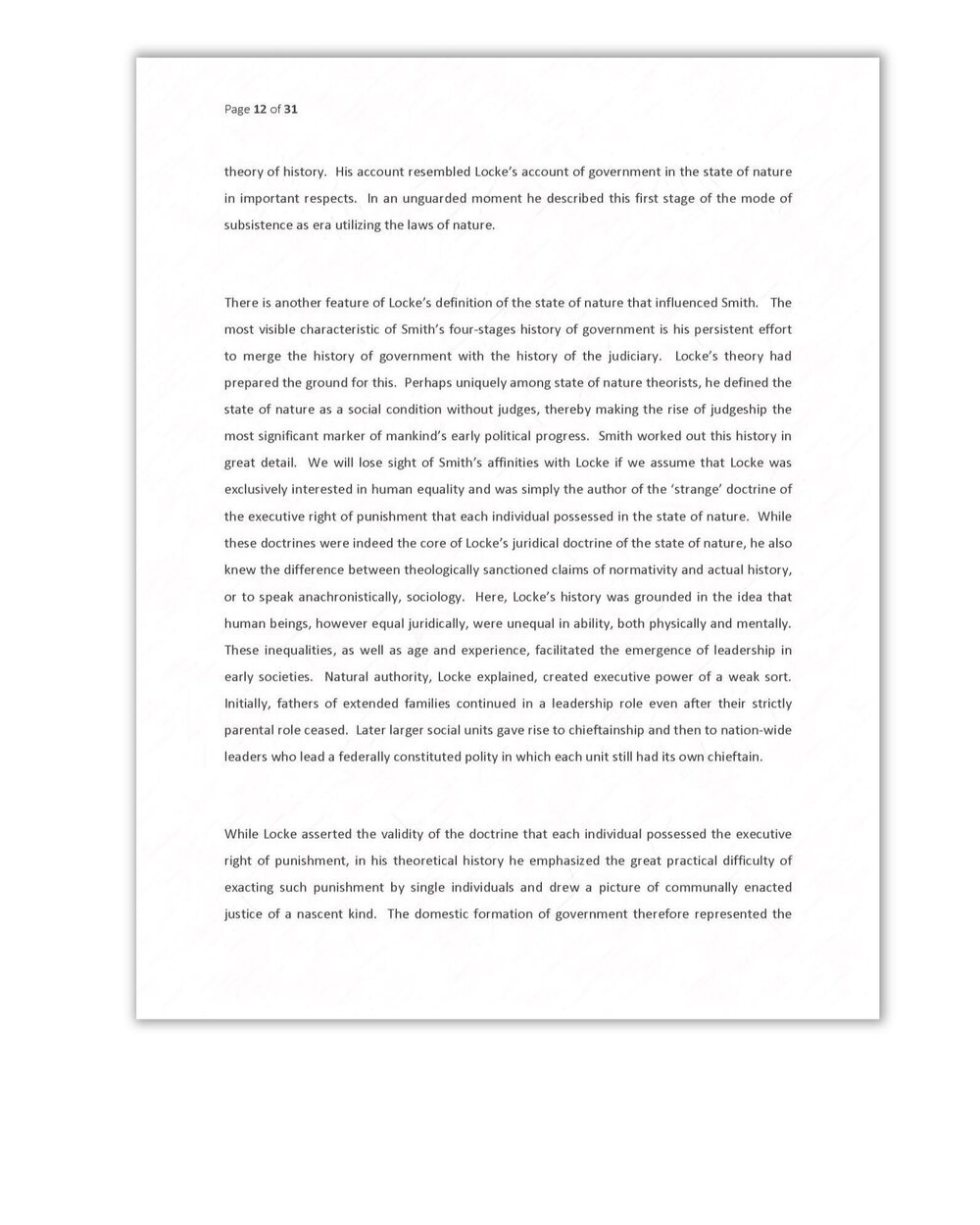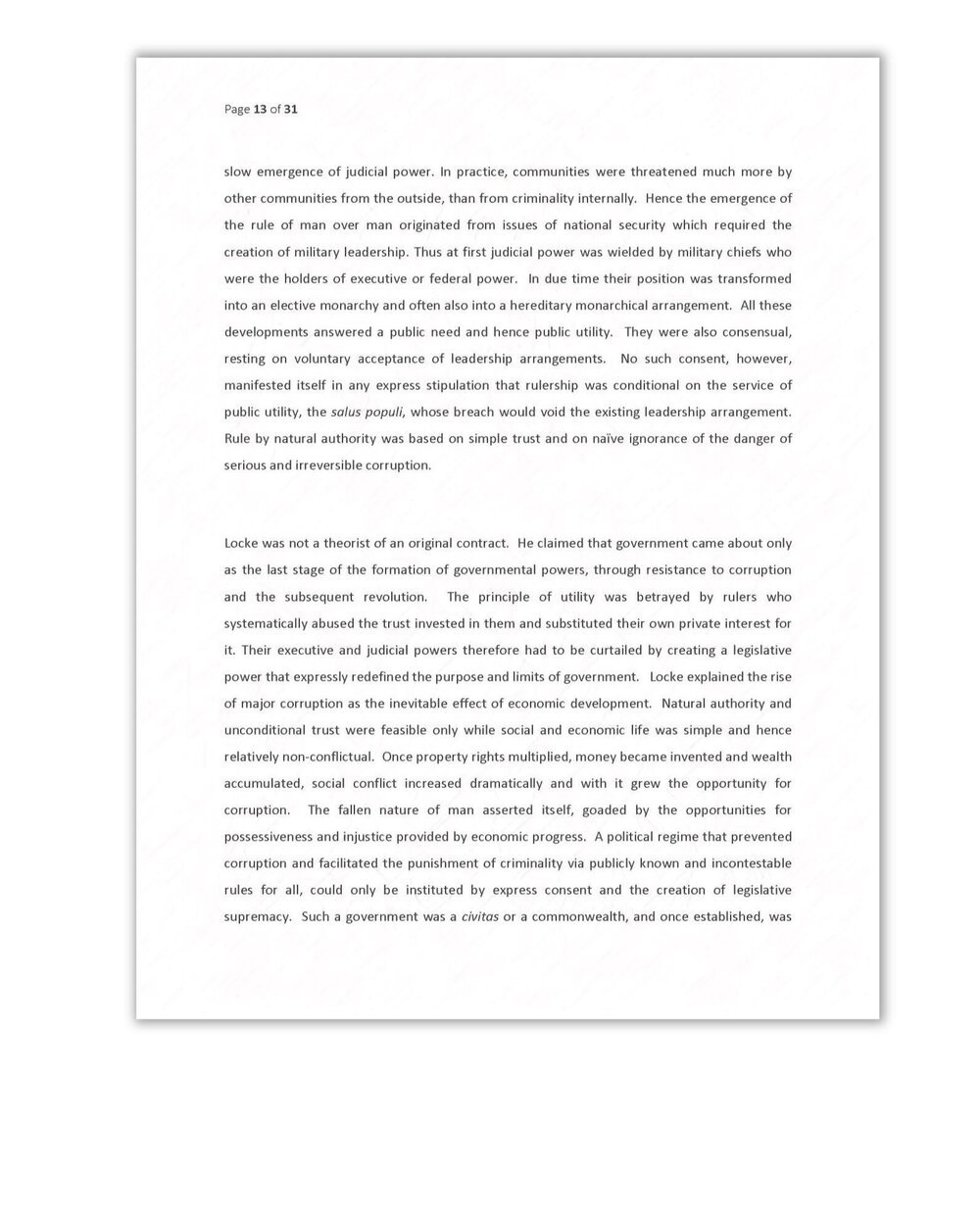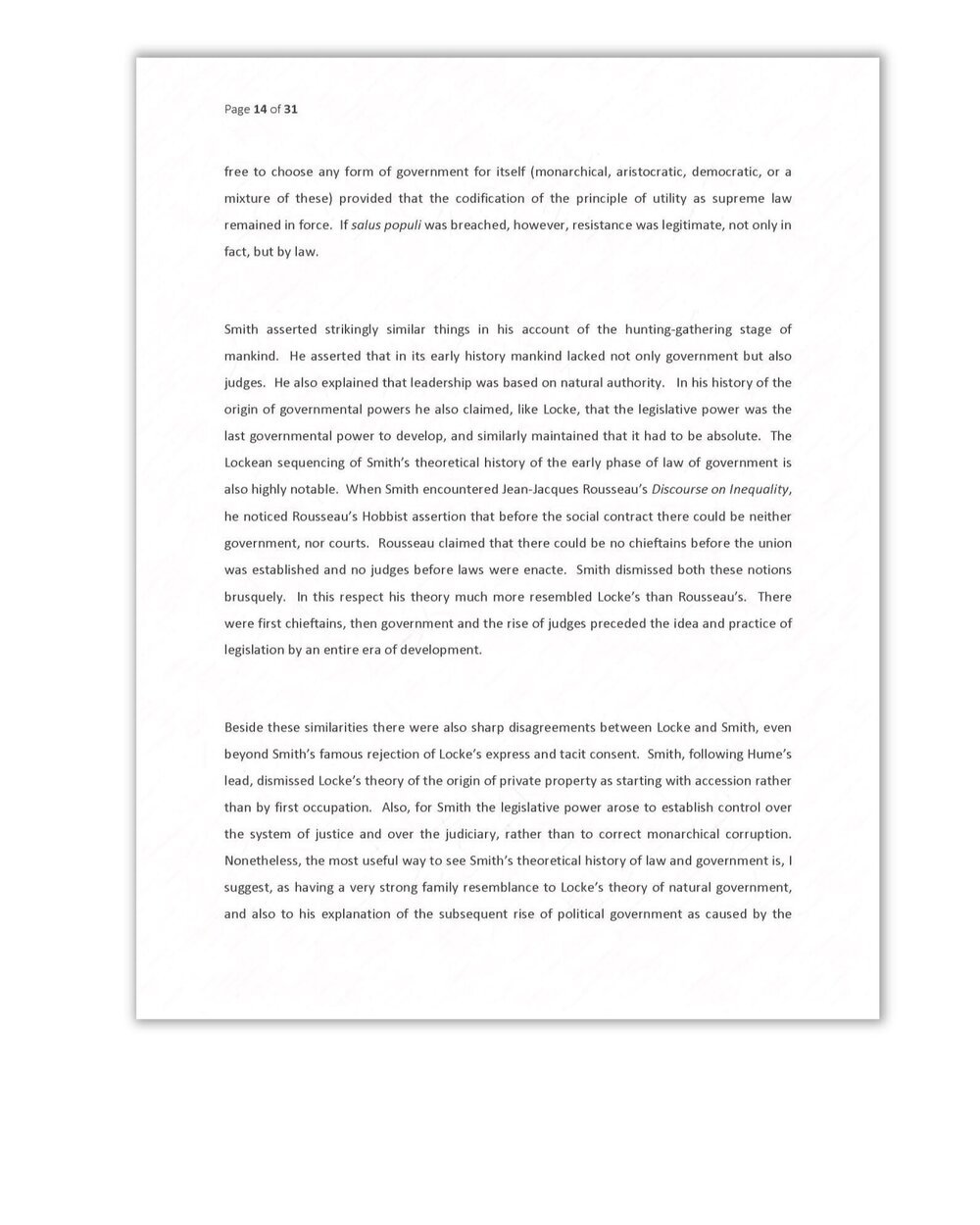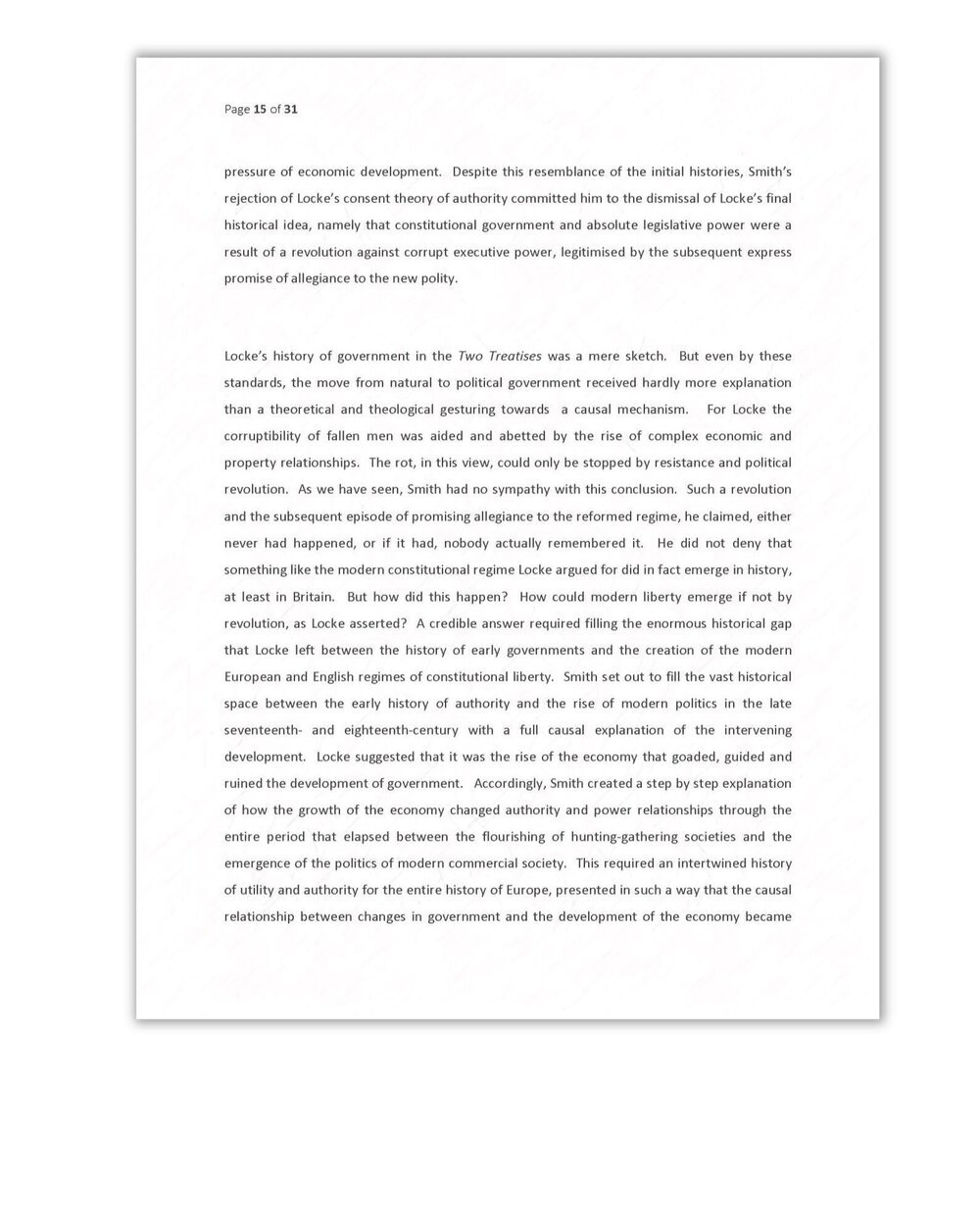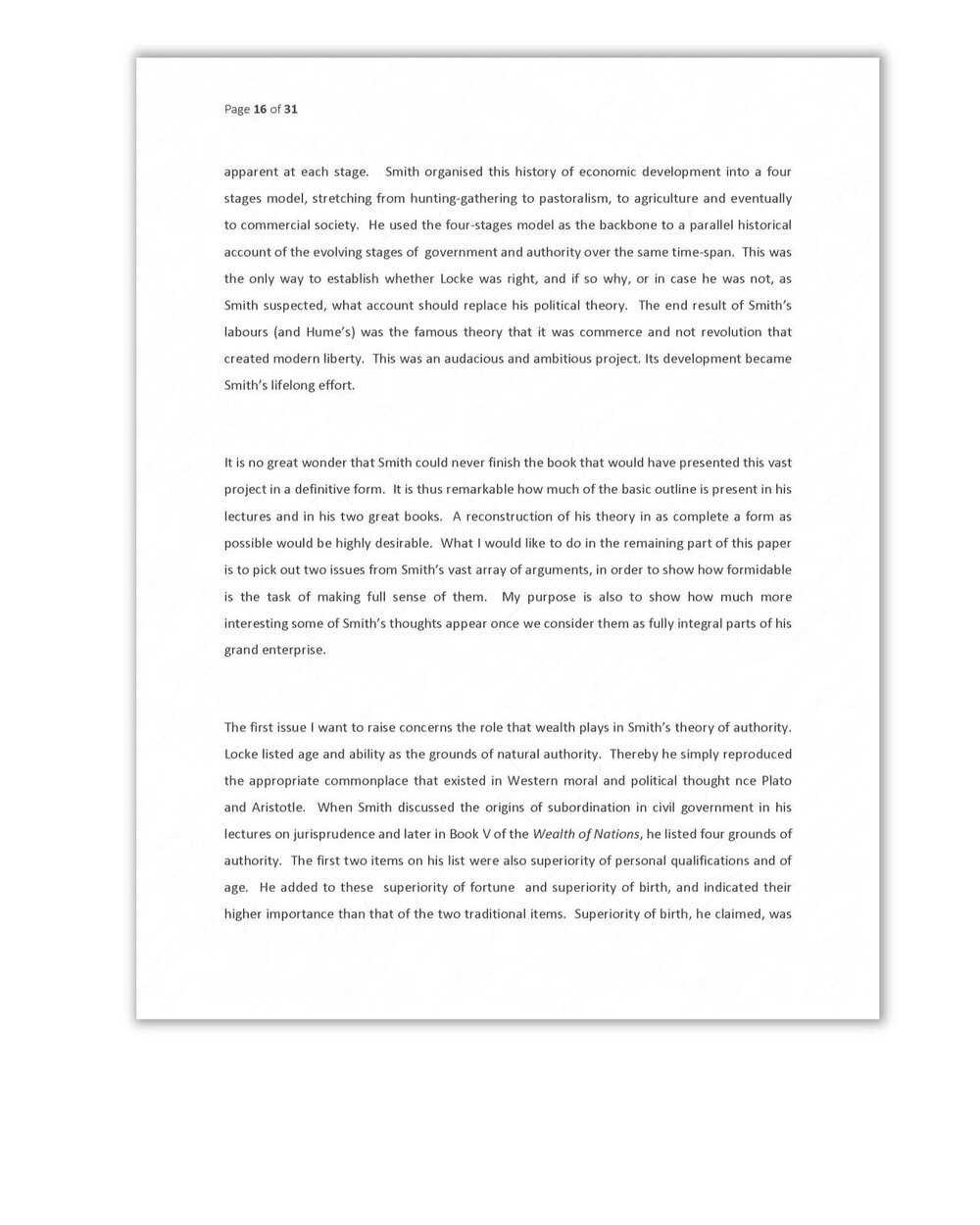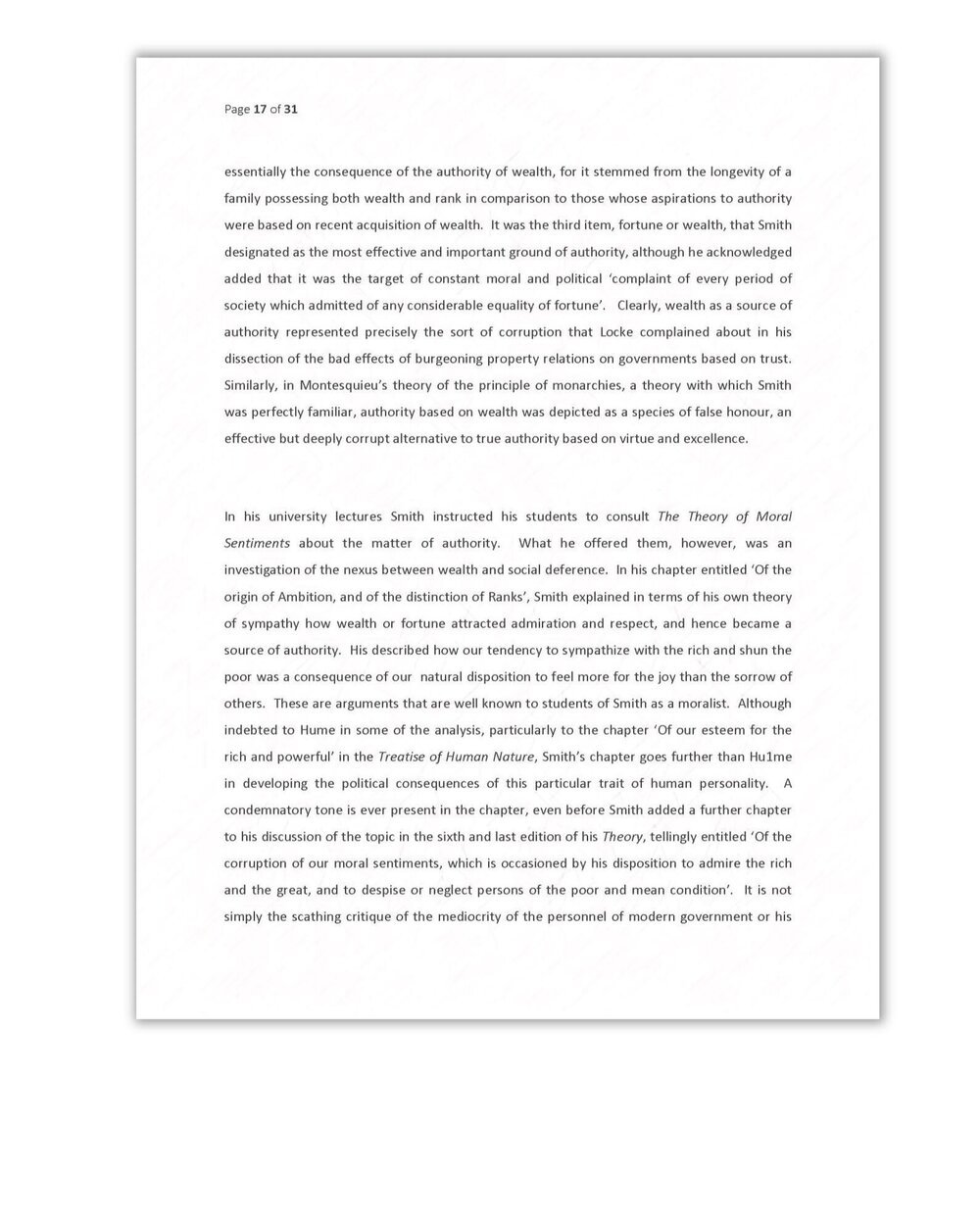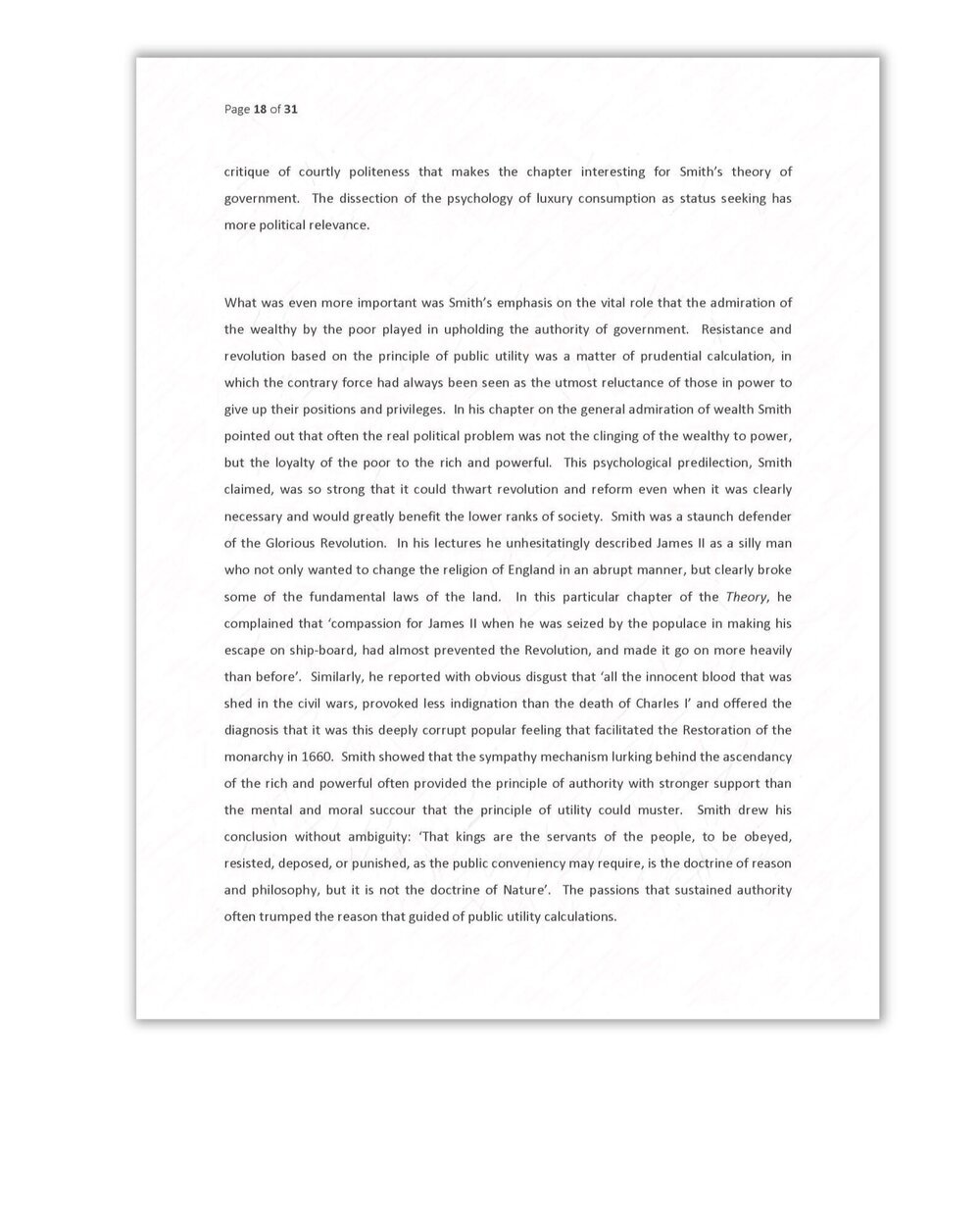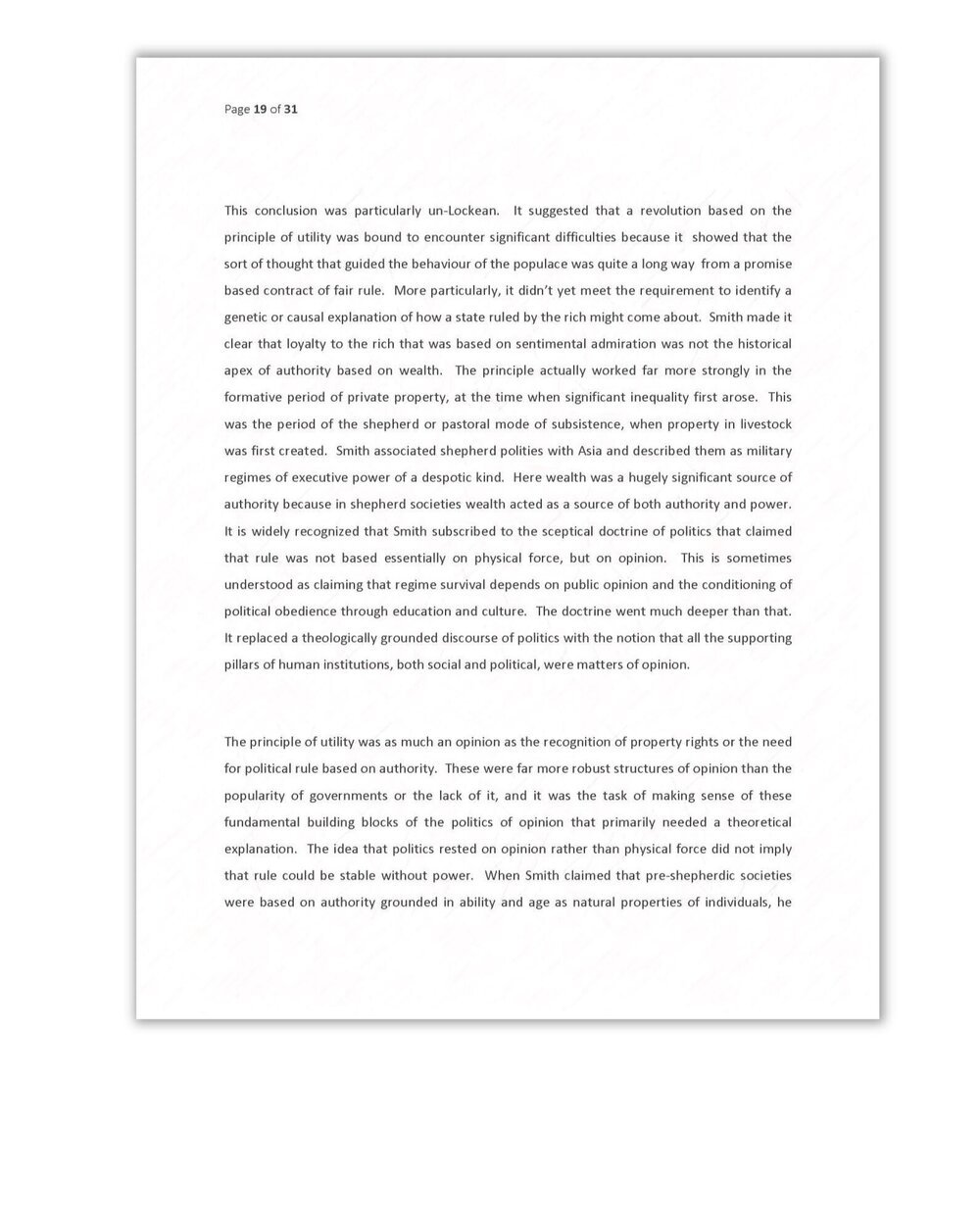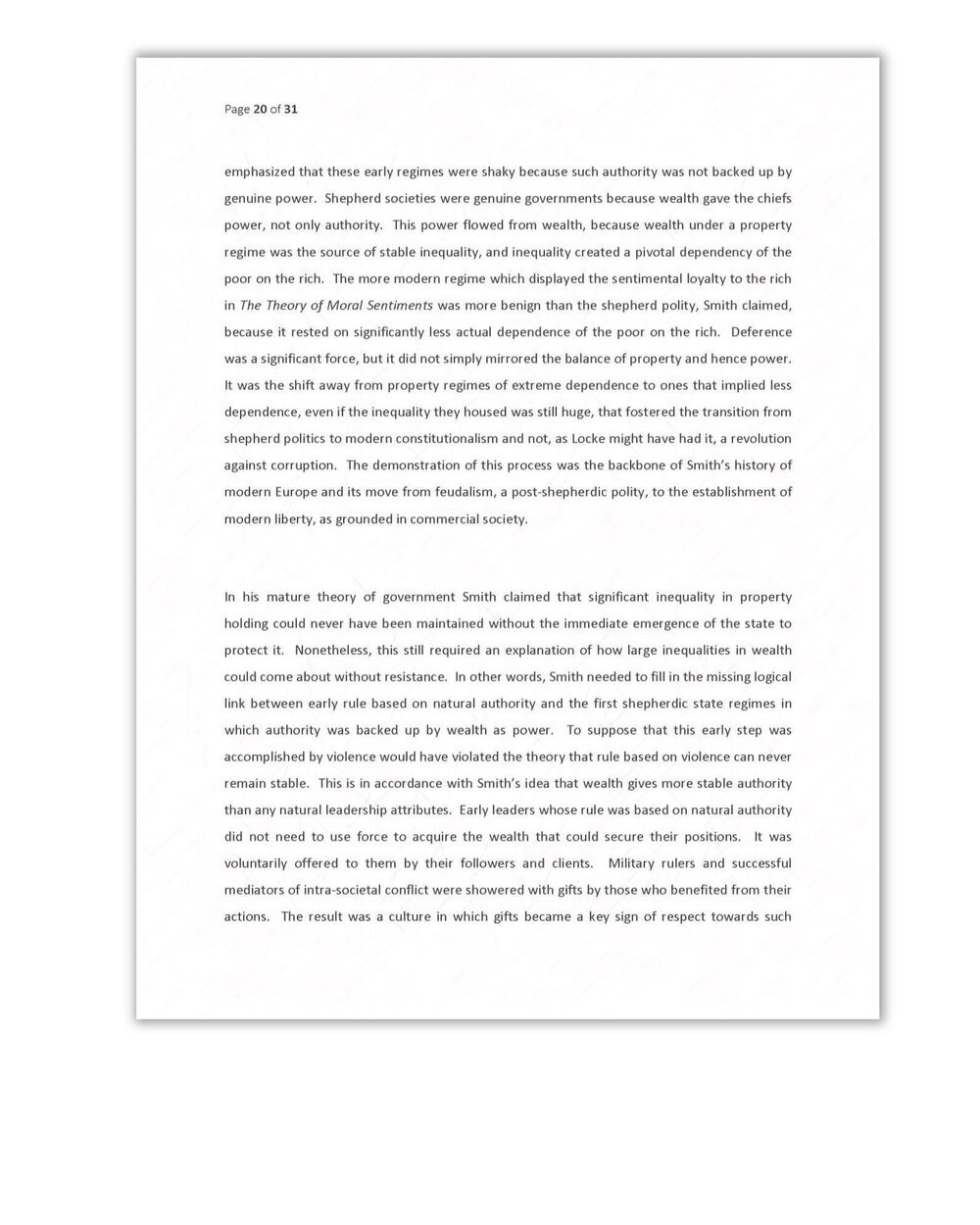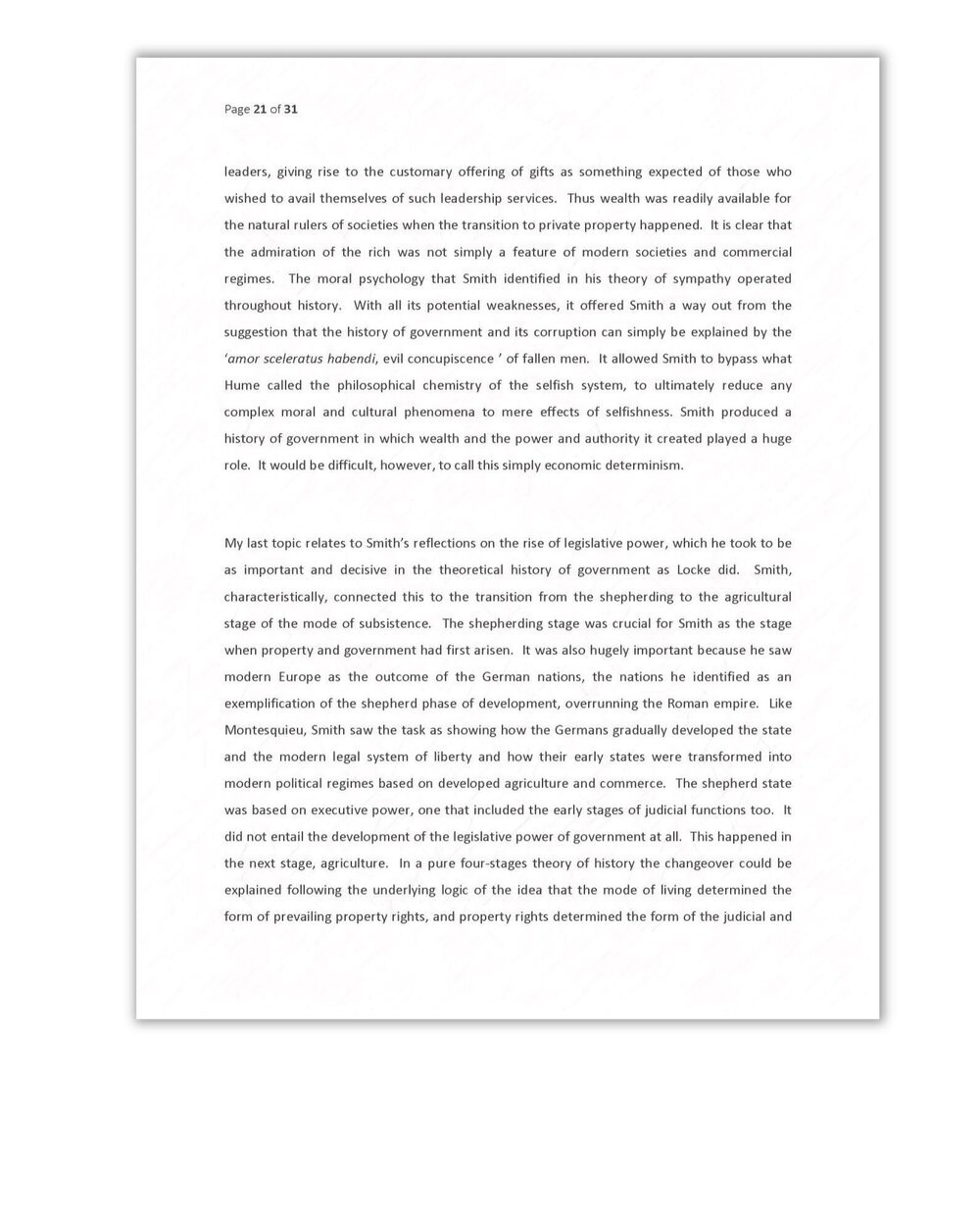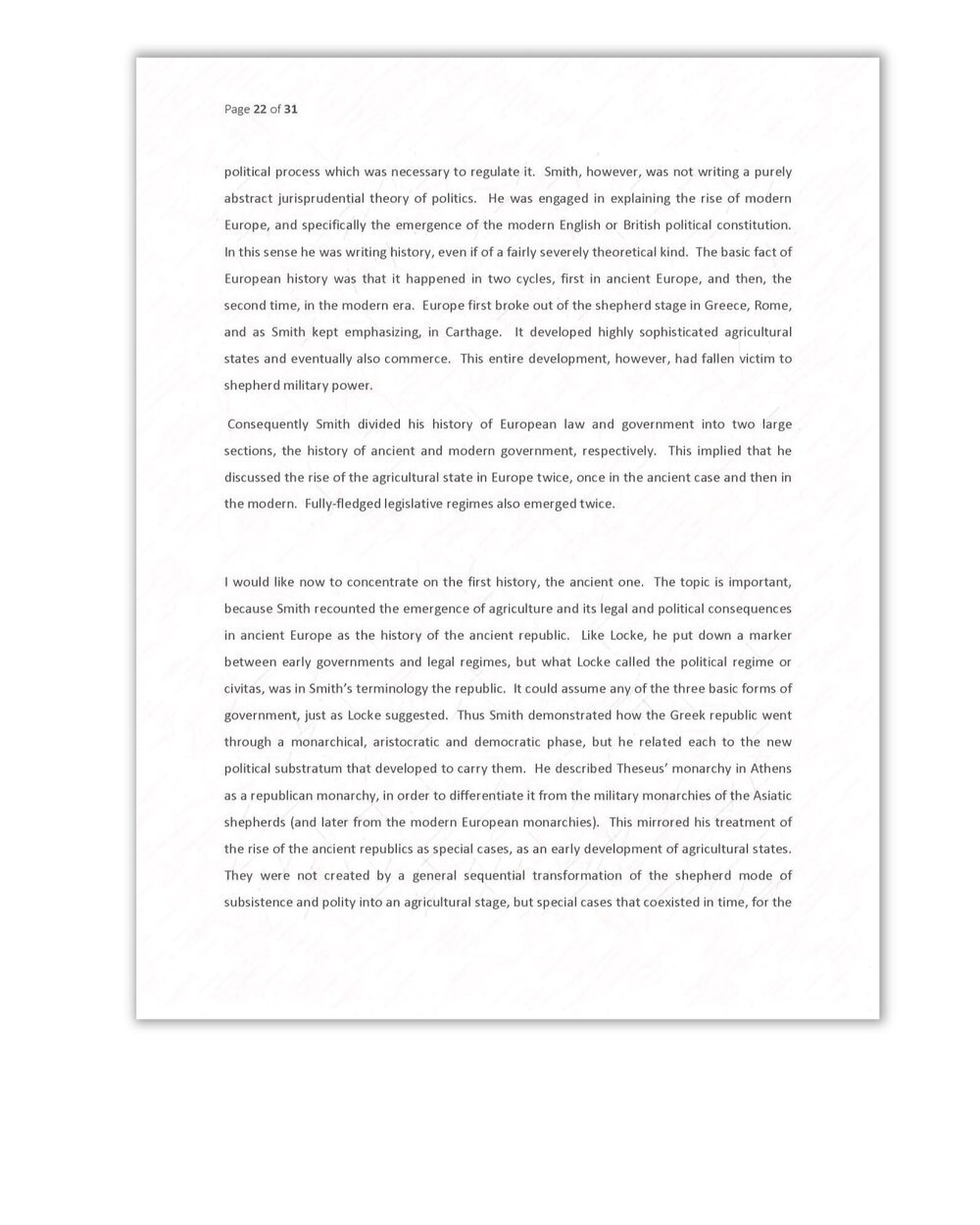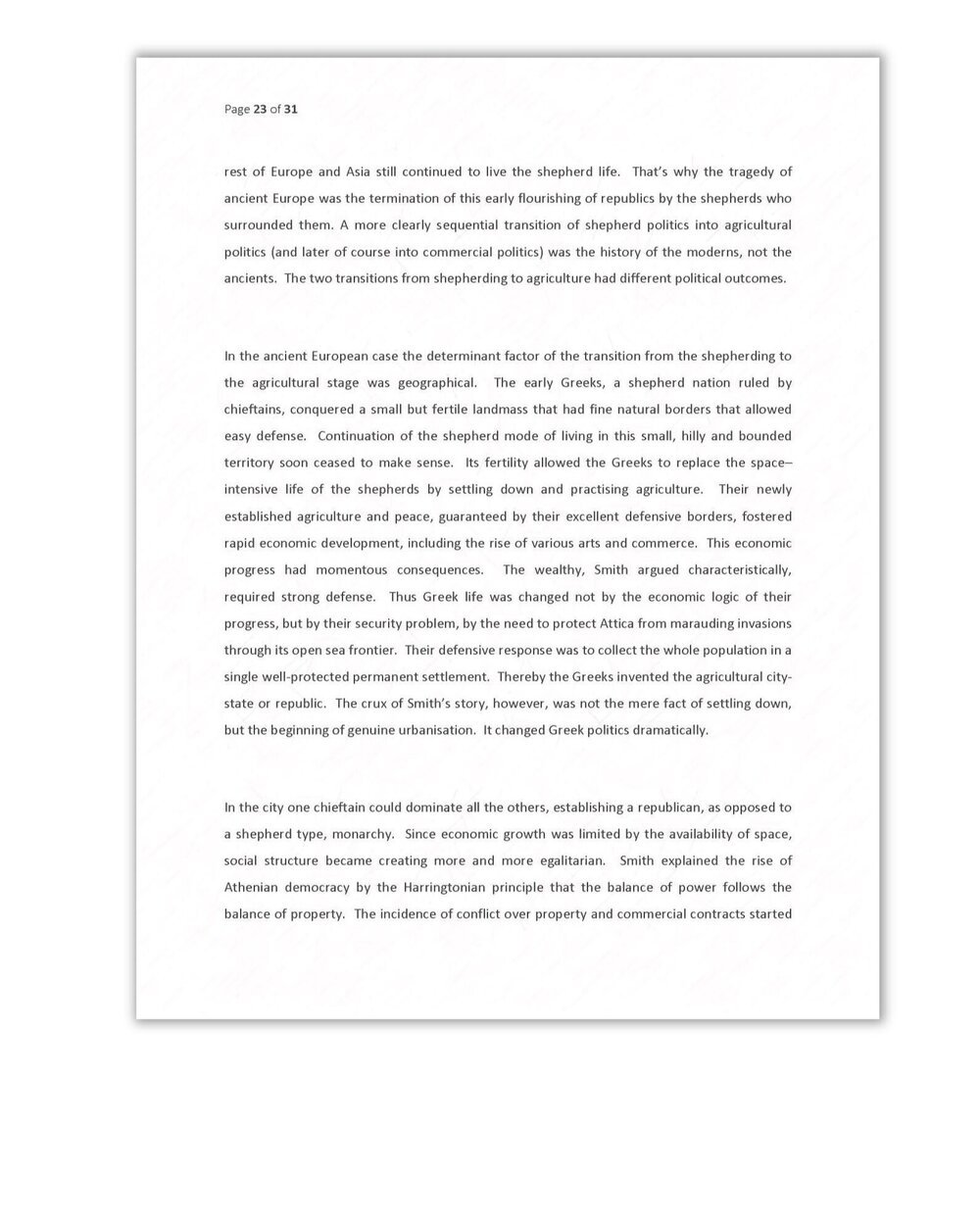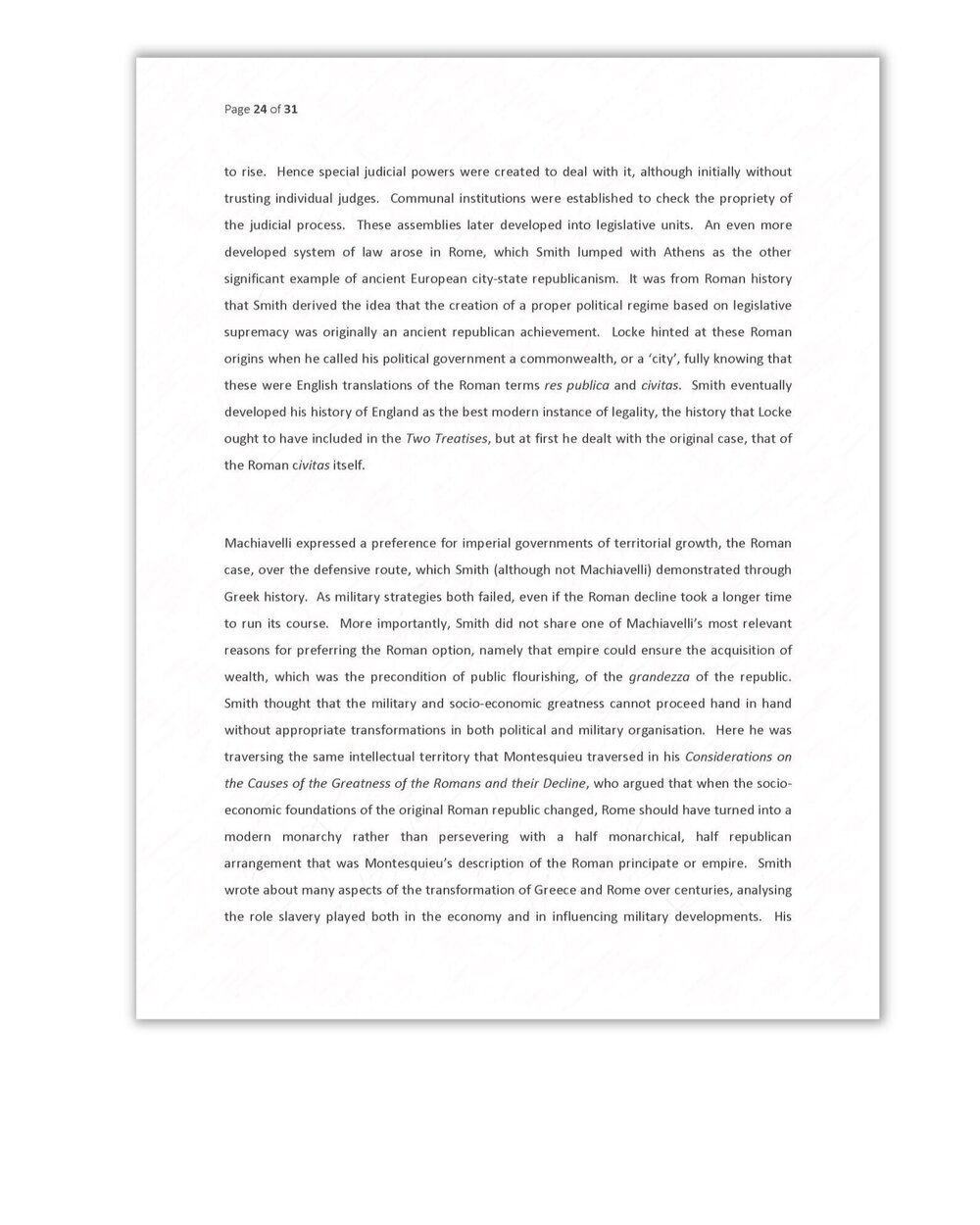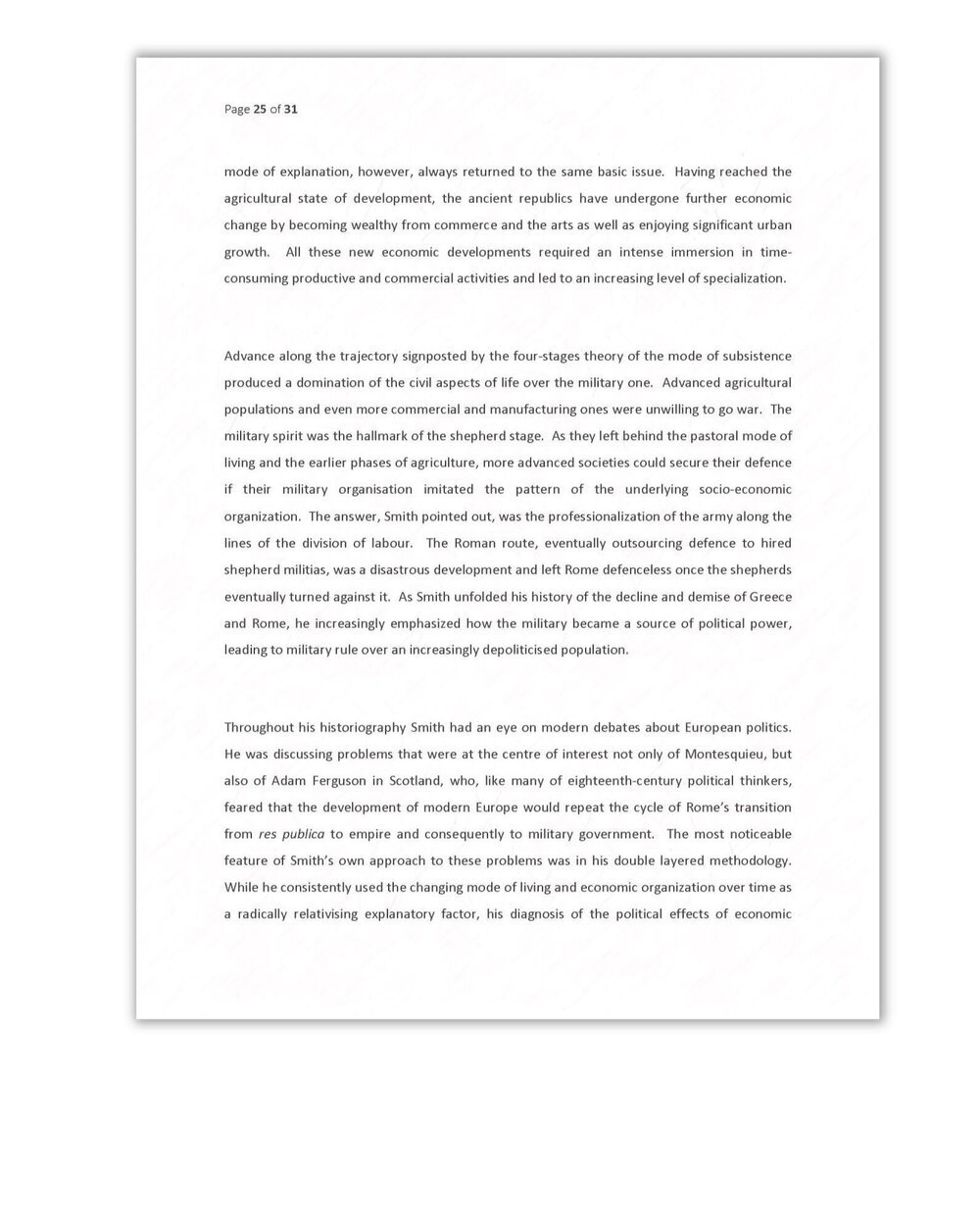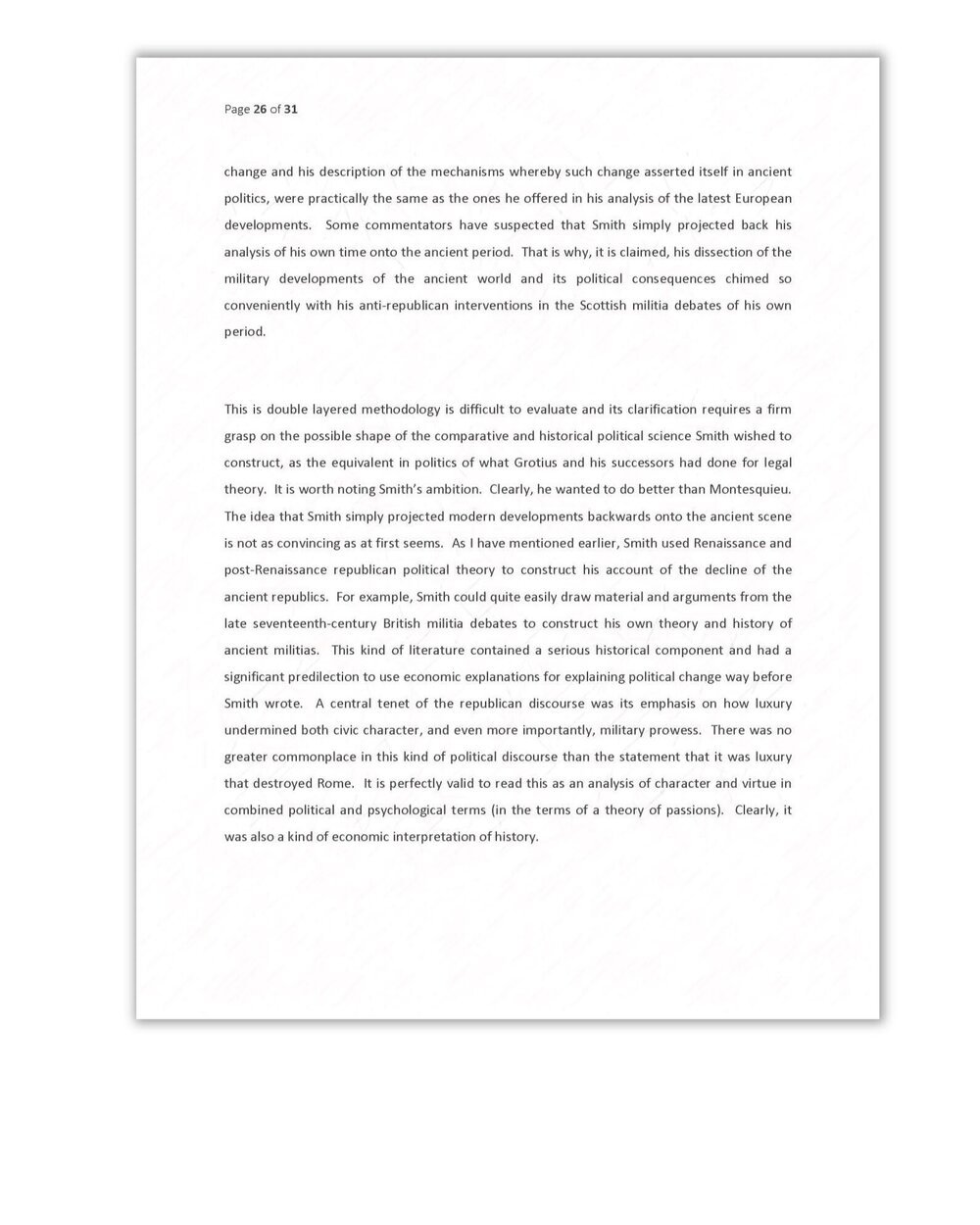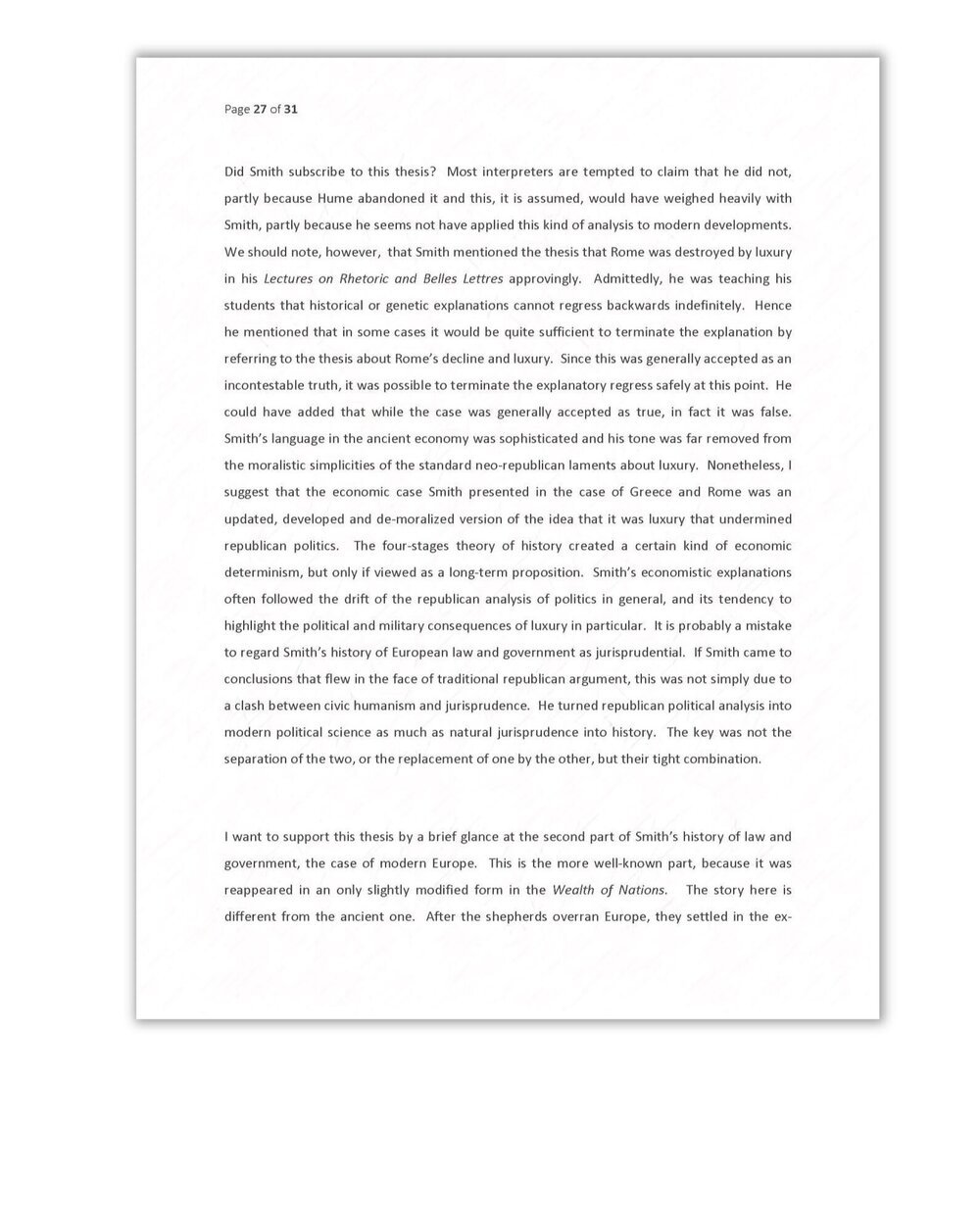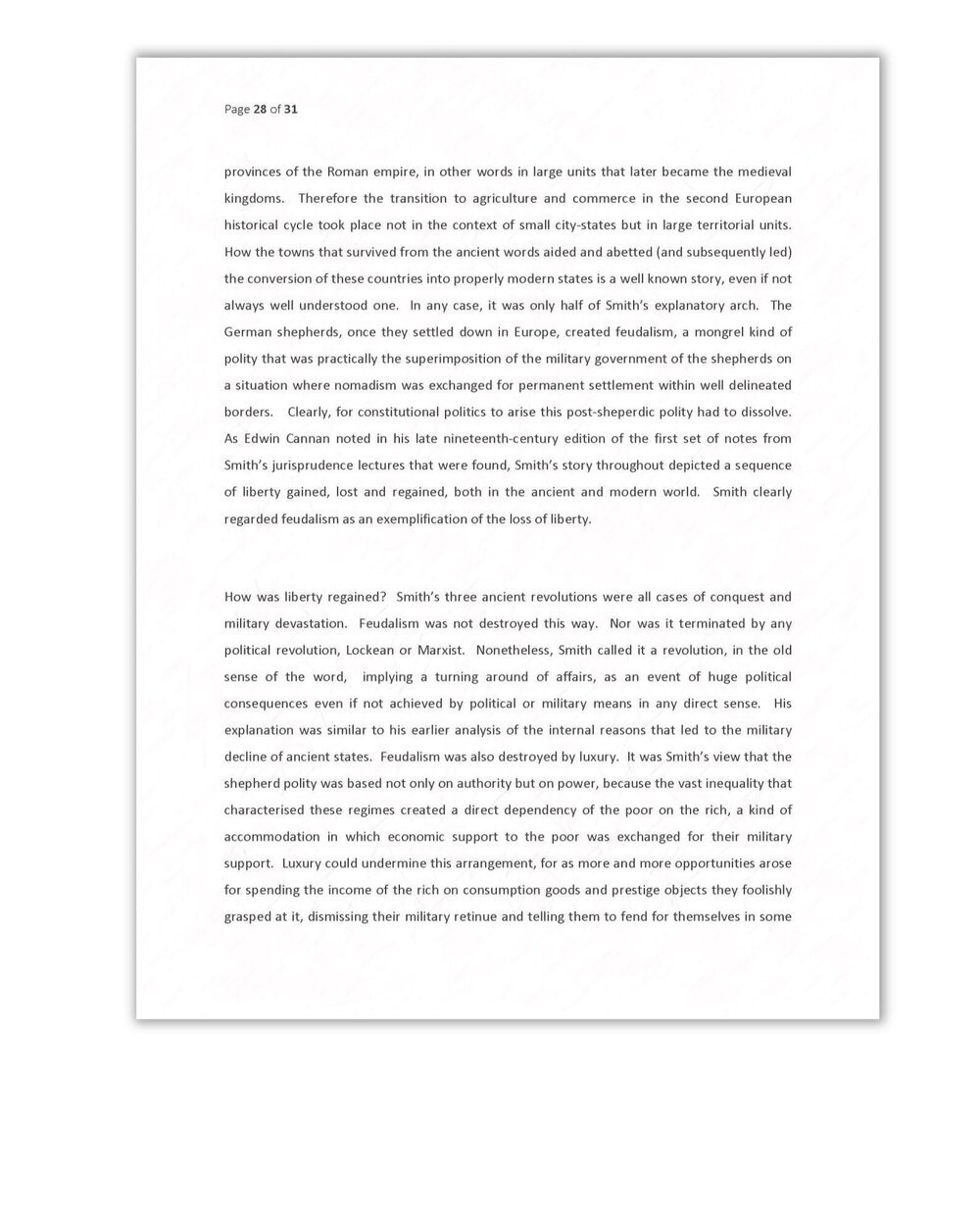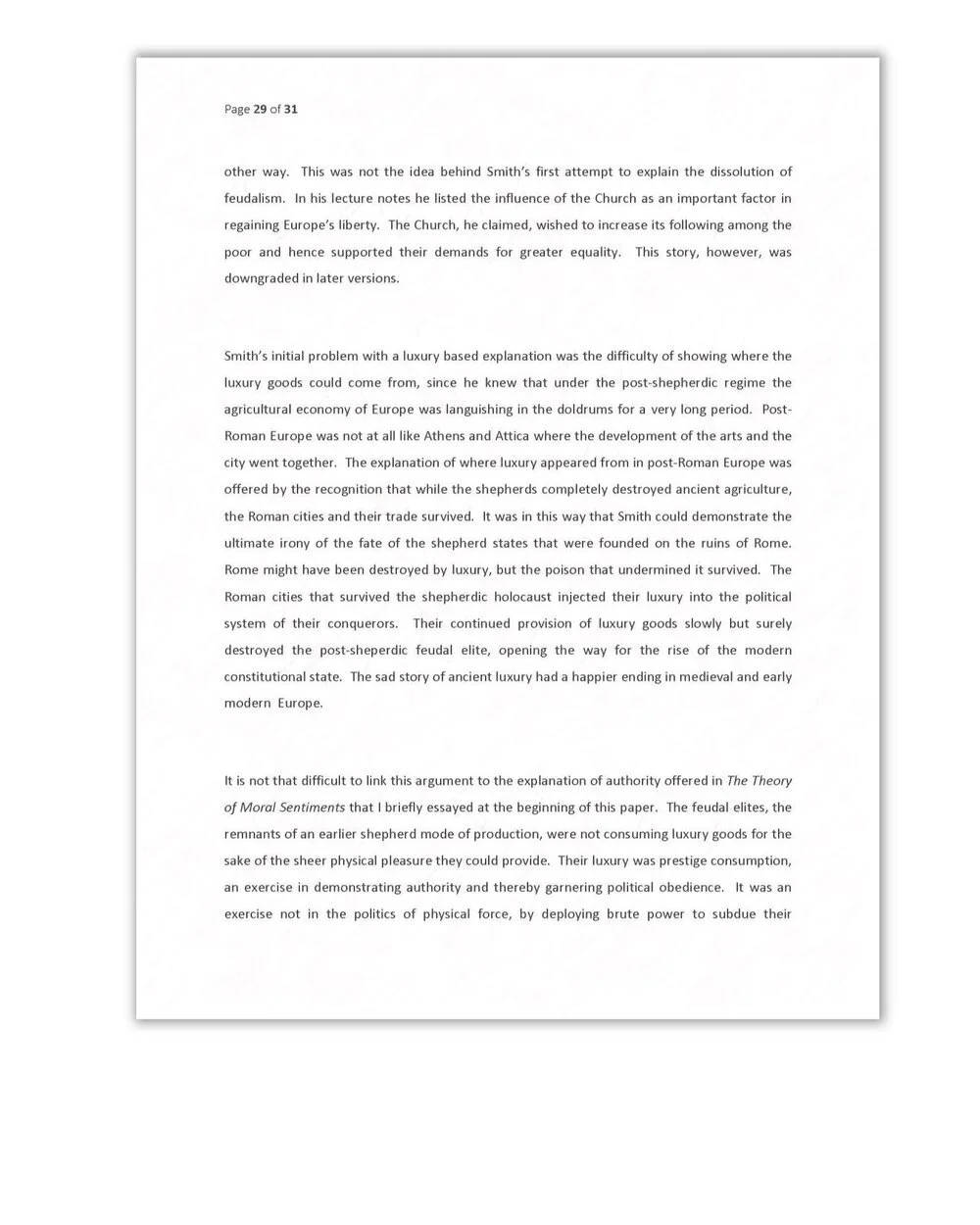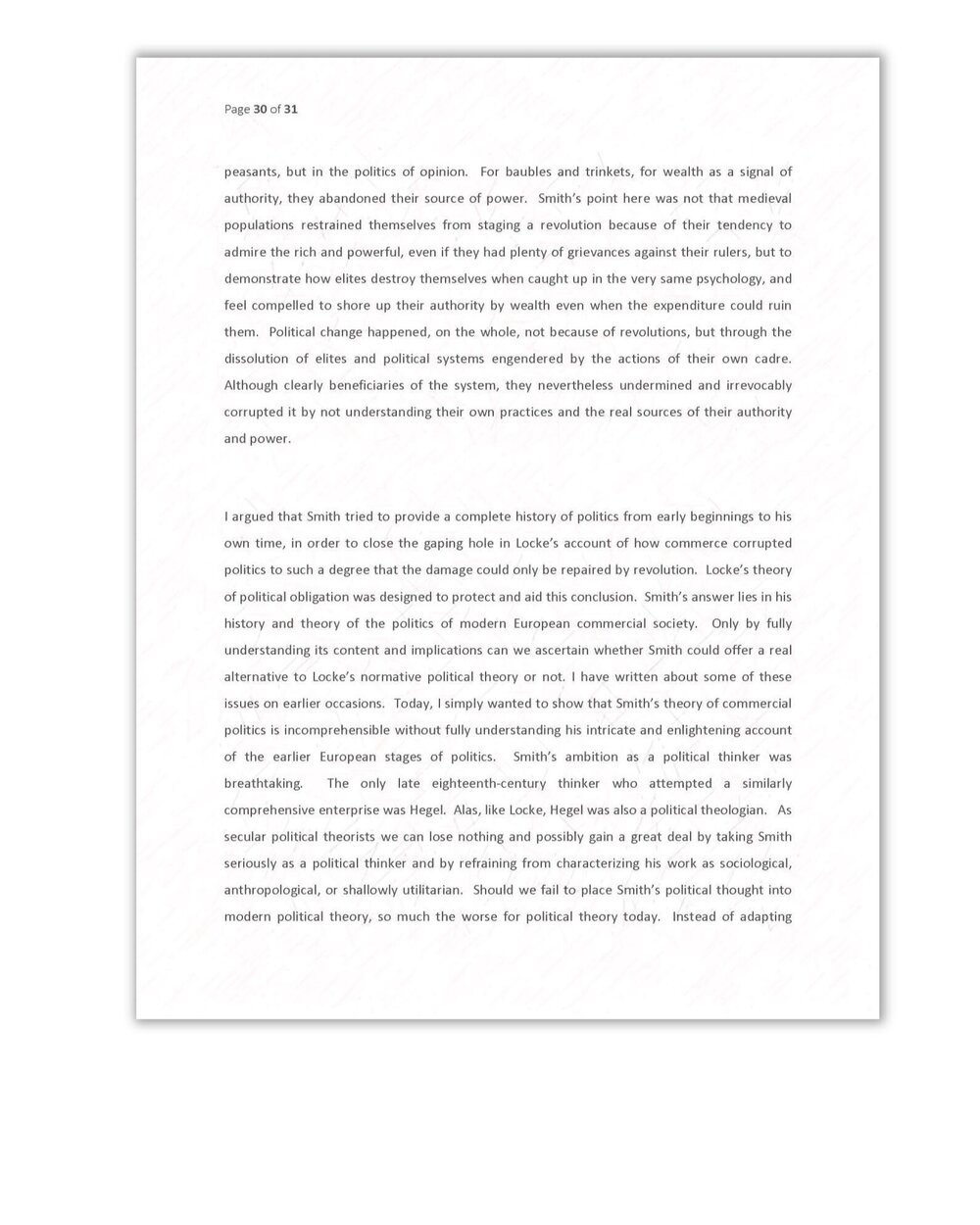The Political Theory of Adam Smith
Item No. 20.
Reclaiming Adam Smith
The idea that Adam Smith ought to be considered a major political thinker, comparable in importance to contemporaries such as Rousseau and David Hume, is not an idea that has been widely shared by historians of political thought. After all, which of Smith’s two published books can be said to constitute his contribution to political theory? Unlike Rousseau or Hume, Smith did not dedicate any independent work or essay to political questions as such. His first book, The Theory of Moral Sentiments (1759), is most accurately described as moral theory, although many contemporary critics considered it a failure in this regard. And The Wealth of Nations (1776), undoubtedly the most famous book in the history of political economy, has predominantly been interpreted in the narrower context of the history of economic though which usually spans from the French physiocrats to Marx and beyond.
When the contextual approach of the ‘Cambridge School’ emerged in the late 1960 and revolutionised the study of political though, Adam Smith was initially dismissed and overlooked as a genuine political thinker, being instead seen as having anticipated the materialist sociology of Marx by advancing a stages-theory of the development of society. Moreover, the absence of a strong theological foundation to his natural law thinking meant that there was a sharp discontinuity between Adam Smith and the political controversies of the 17th century. According to the intellectual historian István Hont, this was a huge mistake. Building especially on the revisionist work of Duncan Forbes, Hont began in the 1970s to reconstruct the political thought of Adam Smith by arguing - against his friend John Dunn - that Smith, instead of being an exponent of a proto-Marxist sociology, was a worthy successor to the political thought of John Locke and the 17th century. Smith did have a political theory, but it had to be unearthed from underneath the interpretive gloss of two centuries of obfuscation and neglect. Paradoxically, Hont located Smith’s political theory in a book that he never wrote; a book on the ‘history of law and government’ which successive editions of the Theory of Moral Sentiments continued to advertise. Although this work was never completed, Hont believed that its theoretical content could nevertheless be reconstructed by carefully studying Smith’s published work as well as his lectures on jurisprudence. In fact, the reason why Smith failed to finish this book was, Hont believed, largely due to the fact that so much of it had already been included in his other works. It was Hont’s conviction that, by gathering all of these scattered theoretical elements together, an original and profound contribution to political theory could be discovered and brought to bear on the problems of our own political predicament today.
The final result of Hont’s work on Adam Smith’s political theory was published in the long essay entitled “Adam Smith’s history of law and government as political theory”, published in Political Judgement - Essays for John Dunn (CUP, 2009). Before this essay was published, however, Hont gave a number of work-in-progress lectures to students and colleagues on both sides of the Atlantic. In 2006, when Hont visited Columbia University (Barnard College) in New York, a recording of one of these lectures was made, which is now made public here for the first time along with the draft paper that he submitted to the seminar.
- L. Andersen

